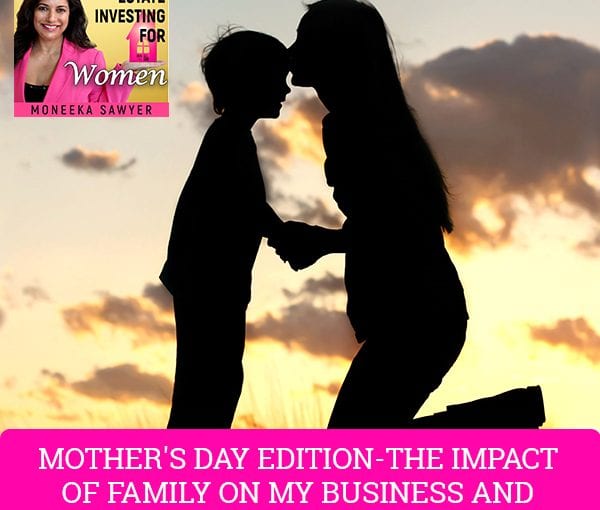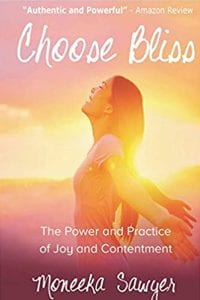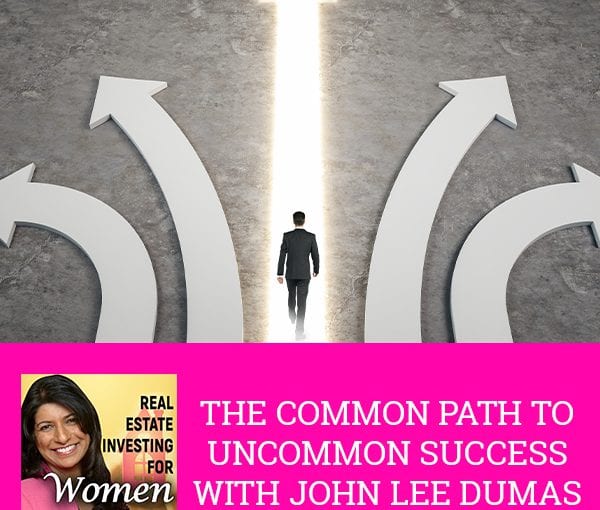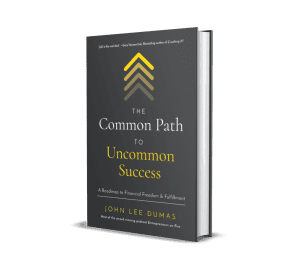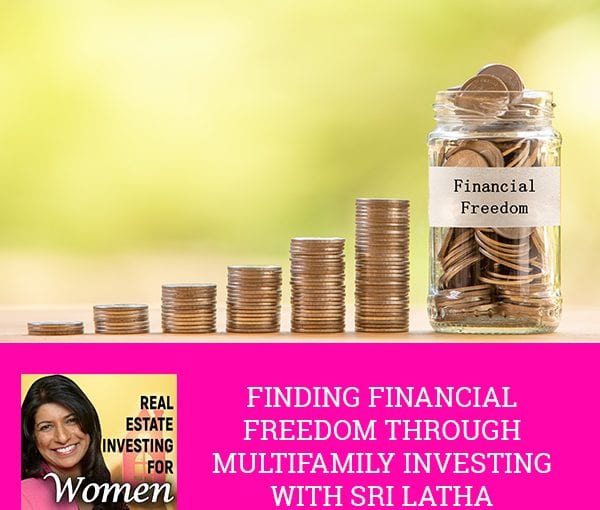Real Estate Investing For Lifestyle Design With Ali Boone – Real Estate Women
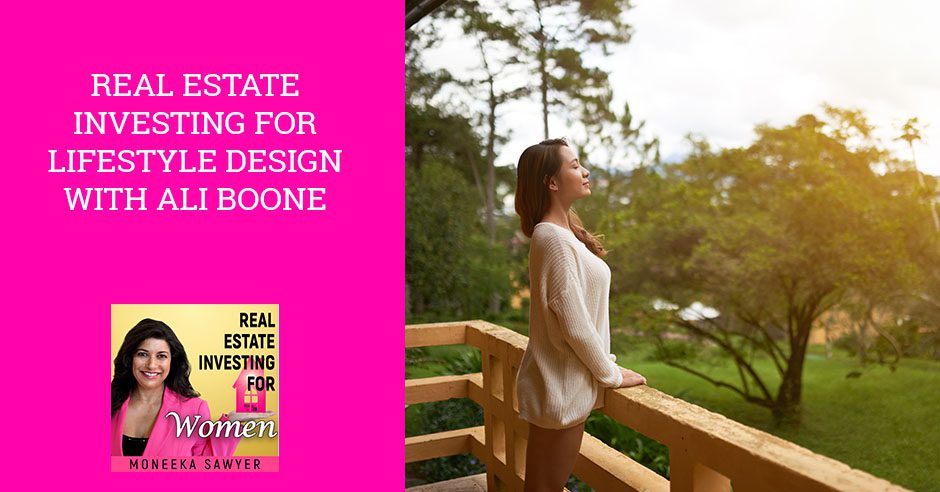
If 2020 has taught us nothing else, it’s that we’re not guaranteed anything. If you’re not enjoying the journey, then what’s the point? Sometimes, that’s very hard to say in real estate investing. With countless how-to guides out there, so many people either never get into it or have enough of a failure to deter them from coming back. Lifestyle entrepreneur, real estate investor, and author Ali Boone has been involved in real estate investing since 2011. She joins Moneeka Sawyer on today’s show to talk about her new book, NOT Your How-To Guide to Real Estate Investing. Ali talks about the importance of figuring out who you are first and starting with a real estate investing strategy that’s best suited to you for a better chance of achieving financial and time freedom. She also shares her idea of what makes a great investor and the one strategy to succeed in real estate.
—
Watch the episode here
Listen to the podcast here
Real Estate Investing For Lifestyle Design With Ali Boone – Real Estate Women
Real Estate Investing For Women
I am so excited to welcome back to the show my friend, Ali Boone. It’s so fun to call her my friend because we met through the show. We’ve done so much together since then. I love when she comes back to us.
I think you’ve had me back on her show more than anyone else. I’m like, “Why don’t we do it again?”
The conversations are so much fun.
It gets dangerous because I’m like, “How long can these things be?” I think we get to talking and completely forget the record button is even going.
If your mindset is not correct, there's not a how-to guide in the world that's going to help you. Share on XYou did that right now. Ladies, let me remind you who Ali is. Formerly an aerospace engineer, Ali Boone is a lifestyle entrepreneur, author and real estate investor, new author, which is what we’re talking about. After leaving her 9:00 to 5:00 to pursue ultimate freedom through entrepreneurship, her company Hipster Investments managed to facilitate over $18 million in real estate transactions in its first five years of business. She has a Master’s degree in both Aerospace Engineering and Spiritual Psychology. Ali also teaches flying and can often be found snowboarding or volunteering in prisons. Her ultimate goal is to one day challenge Tim Ferriss to a lifestyle design duel. I love that last slide.
I’ve gone a little lazy in that pursuit because I’m like, “I like sitting on my couch now.” I don’t know if that’s ever going to happen, but we’ll see. I figure, keep it in there just in case Tim’s listening.
It adds a little spice to the bio. It’s not like yours needed more spice. Ali, you released another book. I got highlighted in that, which is totally cool.
I would call it more than highlighted. You played a big part in this book. I‘m so excited. I was like, “Who can I have?” You were literally the first person I thought of because we’ll talk about the book. I wanted to interview investors because I want to give people a day in the life of. You can read about flipping and wholesaling and all that, but what does it look like? I wanted to find successful investors in their particular strategies and cover a wide variety of strategies. I was like, “What are you doing?” Honestly, your interview came back.
It was so great because you captured the essence of what I was trying to get at, which is the real-life perspective, not using big fancy words, how–to guides, or like, “Here’s how you flip a property. Here’s how you wholesale.” It’s a very stoic type of thing that everyone reads. Yours was obviously your experience, the actual things you go through, in English. In some of the other interviews, God bless them. I was, “Okay, follow up questions,” one word answers. I was like, “Yeah.” Pretty sure yours is even the first one of everyone’s. It was a good one. Everyone should take a look at it.
It was fun. When I got the book, it’s so good, Ali. Let’s start by telling why you even wanted to write a book. Ladies, you know that this show is released on YouTube under Real Estate Investing For Women. It’s also on Roku on Real Estate Investing For Women. I think you can look it up under Moneeka Sawyer on Roku too. I know you can on YouTube. If you want to check these shows out on video, that’s a great idea. You can check it out of those two places.
What made me write the book? I’ve been involved in real estate investing since 2011. There are all the how–to guides. There’s everything we all go through, trying to learn real estate investing. How to be a real estate investor? You hit it in Google. All these things pop up. We all go to the guru seminar. We all do the same thing. Over time, I was investing for myself, but I was also working with a lot of other people. I work with turnkey rental properties. I was working with a lot of new investors. Over the years, I have seen so many people trying to get in this industry. I have seen so many people either never get into it or get into it and have, I won’t say epic failures, that sounds terrifying, enough of a failure to deter them from coming back.
As I was watching people, I realized so much of this is a mindset game. When I think back to googling how to be a real estate investor, what is the thing that you see? All you see are how–to guides. I have a theory that if your mindset’s not correct, there’s not a how–to guide in the world that’s going to help you. There’s a huge, high percentage rate of failure. It’s entrepreneurship. They say 95% of small businesses fail in their first five years or whatever. I think it’s a similar challenge. It’s not so much the business itself. It’s just that people don’t know what they’re doing. If you think back to when we were all in school, I don’t know what they teach now, but none of us learned real estate investing or business. We didn’t learn how to do our taxes. We’ve had to figure all this stuff out on our own. That’s great but think about when you type that in. All you hear is you need to flip houses, to wholesale, to do this.
Here are the steps. I was like, “Okay.” That may work for some people, but there’s such a mindset component. Should you be wholesaling or flipping? I don’t know. For me, personally, I assumed I would have to be a flipper to be in real estate. I’d be a terrible flipper. I’d hate it, also. Could you have paid me to think I’d end up in turnkey rental properties? No, but it works. I titled the book NOT Your How–To Guide to Real Estate Investing. It’s like a prerequisite, in my opinion, to the how–to guides. Before you can get into the how–to guides, let’s take a step back and look at which how–to guides might be best for you to try out. What’s the mindset you need getting into this industry?
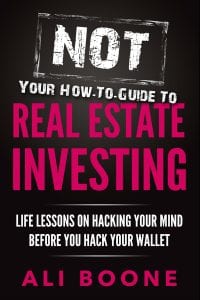
NOT Your How-To Guide to Real Estate Investing: Life Lessons on Hacking Your Mind Before You Hack Your Wallet
The book starts out talking about the real estate investing industry as a whole, what the different characteristics of it are because it is a unique industry. There’s a lot of unique characteristics, which in a lot of ways, are phenomenal. You don’t have to have a college degree. You don’t have to be a high school graduate to be in this industry. You don’t even have to have a good resume. You don’t have to have a good personality. How cool is that? For people who like certain levels of structure, they don’t want to be so independent, or they don’t want to have to do so much creative problem solving, maybe it’s not the industry. That’s where we’re starting.
Let’s introduce you to the industry. It lets you understand how it works. Let’s go further. What are your strengths? Let’s help you navigate the process of figuring out what strategy might work for you. I feel like if you start in a strategy that’s better suited to you then everyone’s like, “Go, flip properties.” Great for some people, but super misleading for the people that’s not good for. Let’s look at different strategies, so you can get a feel for picking one that is better suited to you. Therefore, you have a better chance of success. What are the steps to get through that? The investor interviews, to further exact reason, to give you a better perspective, would you like the life of a wholesaler or would you like land-lording rental properties? I don’t know. Here’s some information to help you decide. My whole motivation with this was to take that step back and try to give people a better start to help increase their chances of succeeding once they get into all those how–to guides.
With my coursework too, it’s an exact same process. I think that’s why you and I are so well aligned. Everybody’s watching HGTV and it’s sexy. “This is what can happen to you. You can wholesale, no money down. Look at what can happen. You can make how many dollars.” Sexy, yeah, for some people that work. In the HGTV world, none of what happens there happens in real life. There are people that are successful at flipping. There are people that are successful at wholesaling. There’s a lot of successful opportunities. It’s important to figure out who you are first. As you say, and like I’ve been saying for years, if you start with a strategy that’s best suited to you, your goals, resources, personality, what you love, what you don’t, how much time you’ve got, all of those things, you’re much more likely to stick with it. You’re much more likely to make it through the challenges because every business has its challenges. You’re much more likely to experience great success.
I’d say it’s not even more likely. That’s the only way it’s going to work. I could choose a strategy that’s not well suited to me, but I’m not going to enjoy my life while I’m doing it. In my opinion, I don’t think there’s any way to be as successful doing that as I could be doing a strategy that is suited to my strengths, interest, whatever. I think strengths and interests go hand in hand. How many of us are good at doing things we hate or terrible doing? We don’t usually love the things we’re terrible at. I love what you say about sticking with it through the challenges. For me, that rings true about entrepreneurship.
Entrepreneurship is hell on wheels. This whole time that I’ve been doing it, if I weren’t desperate for what it gets me, I would have quit a long time ago because it’s not easy. Real estate investing, in a way, is entrepreneurship. There are going to be challenges. If you’re hating what you’re doing, and you’re not succeeding terribly great with it, what’s going to happen when you get challenged? When are you going to quit? You’re going to be mad at real estate investing and jaded. I care so much about people’s experiences. That crushes me if that happens to somebody because I get where they’re coming from. I‘d probably be traumatized from it too, and never come back. I don’t want someone to give up unnecessarily when there might be a perfectly good strategy there.
Strengths and interests go hand in hand. We don't usually love the things we're terrible at. Share on XOne thing you and I always talk about is we have different strategies. You landlord your own properties, I use property managers. What I love about us doing different strategies is while they’re different strategies, we’re also doing exactly the same thing, which is working to our strengths and working in what comes naturally to us. Both of us have succeeded with that. I don’t care what strategy someone else does. As long as everyone’s working to their strengths and doing something meant for them, that makes me happy. We don’t know what we don’t know, which is 100% true for real estate investing. How do you know what strategy is for you? Chances are, you’re not. That’s part of the motivation too. I’ll help you figure that out before you lose a ton of money doing something that someone told you to do.
I want to back up a little bit to the place where we talk about getting better or things went badly, never wanting to get on that horse again. What they say, if you fall off the horse, you have to get back on it and run. When you think what happens in real estate is, if you’ve tried a few things, and they haven’t worked, you’re like, “It’s never going to work.“ That’s exactly why a book like this is relevant. I always say there are a million ways to make $1 million in real estate. If there are a million ways and you’ve tried 3 or 1, what is that? There are a million opportunities.
The good news is you don’t have to try 999,000. You’ll get it on 3 or 4. Looking at these things, how can you get there faster? If you read this whole book, the idea is to get you closer to figuring that strategy out. It may not get you right there. You and I have talked about how you did things in the past with your strategy is slightly different than how you do it now. We all evolve over time. How can we put it more in 1 to 5 attempts range versus 50 attempts range? Chances are, you’re not going to stick around to have successful number 50. How do we narrow it down to what seems might be the right thing for you?
That’s very true. We want to make sure that we pick a strategy that’s aligned with us, probably going to be 3 or 4. You can try 3 or 4. Maybe you’ll hit it on the first one. Maybe you’ve combed the others in. For me, I’m a better person with executive properties. Yes, I have wholesale. Yes, I have flipped. Yes, I have done construction. Yes, I’ve done those things. It happened par for the course without me looking for it while I was doing my main business. It keeps it interesting and spicy, but the main business is where I make my money.
The other thing that I want to say is we’ve had people on this show that built massively successful businesses and then lost everything in 2007, 2008 or because they went through a divorce and their spouse take everything or for whatever reason. There’s a lot of reasons that people see failure. It’s not necessarily because the strategy was bad, but because something happened and they weren’t prepared with how to deal with it. There are so many people that would be in that situation and be like, “I’m out. I’m done.” The people that are on this show are the people that are like, “I am not going to let this defeat me. I know there’s a way for me to have success. I love real estate enough to pursue.” There’s a lot of different reasons for success in this business and there’s a lot of different reasons for failure. The biggest thing to remember is who you are is the most important factor for your success in this business.
I love what you just said. I don’t think I told you this. I’ve started offering coaching. I’ve done it on the side. I’ve never publicly offered it. I’m doing more coaching, mostly because we’re all still stuck at home. It’s 2020. We can hop on some Zoom. Let’s see if I can help some people on Zoom. I was working with a coaching client. In one of her initial information types of things, she made the statement. She said, “I don’t want to be a good investor. I want to be a great investor.” When I saw that line, I highlighted it. I was like, “What a great line.” I asked her, “What is a great investor to you mean?” I feel like a lot of people would say, “If I’ve made $2 million, put a financial whatever on it.” I told her, “When I read that line, it jumped out at me so much. I was thinking, ‘Why is this in my thoughts? What to me is a great investor?‘”

Real Estate Investing Strategy: You have to look at different strategies and pick one that is better suited to you so you’ll have a better chance of success.
It’s exactly what you just talked about. I don’t think whether you’re a good or great investor has anything to do with how much you’re making. If you want to be considered a great investor, you pick yourself back up when something happens because something is always going to happen, whether it’s your own oopsie, you don’t know what you’re doing or whatever. As you said, everything’s going along great and all of a sudden, the bottom falls out of the world. 2020 or 2008, things happen and that’s fine. There’s nothing that you personally could have done for. There are some mitigation strategies. Some things aren’t your fault. It’s not about who’s at fault. Even if you made the dumbest mistake on the planet, it’s not your fault. To be that great investor, you pick yourself up and keep going or you adjust. In 2008, what did all the successful people do? They adjusted. They didn’t quit. It sucked 100% at the moment, but they adjusted. Got kicked down, brush the dirt off, how are we going to do this? Same with entrepreneurship, things happen. You have to just course. 2020 and the pandemic happens. We’re all stuck at home.
I watched Shark Tank all the time, hearing how the entrepreneurs have switched modes because it’s like, “Stuck at home now, what am I going to do?“ I’ve seen so many people adjust course and come out way better off. It’s so cool. When you were talking about that, I was like, “It’s the great investor.” I had this whole conversation with my coaching client. I want to be clear. What I see as a great investor, it’s not about what you buy, what you invest in, what your returns are. Do you keep getting up when you get knocked down? If you do, you are great, in my opinion, because if you keep doing that, there’s no way you’re not going to succeed.
The other piece about that is there is something incredibly fulfilling about not allowing yourself to be defeated. There’s so much of what we talk about with bliss. How do you feel about yourself? We each define success differently. A lot of times, especially when you’re looking for a blissful life, that success isn’t defined by money. Money helps. It creates a foundation for a lot of blissful things, but it’s not the big end result. The big end result is how do you feel in your life most of the time. When we look at success that way, you can look at real estate in your strategy in a very different way too. I want to tell a little story. I do these journals on starting something new. I’ve started some new projects, some good ones. You can listen to this so you can find out what’s going on. I released this in Thanksgiving of 2020.
I went on vacation. Four projects came to a head, 2 to 4 days before I left. One, I had been working on for nine years, one for three years, one for six months and one for three months. They all had to-dos. Everything came. I had to do it right then just a few days before vacation. We were laughing, my husband and I. We’re like, “I need to go on vacation more often.” What’s so funny about that is there was all this urgency before I left. On the day that I was leaving, I left on Tuesday morning. My flight was at 8:30. I texted everybody on Monday night. I said, “I’m out. You guys need to manage it. I’m only gone for ten days, so handle it.” What’s awesome is I came back and it was handled. Everything moved to the next step. For me, that is success. I can go on vacation and have a vacation. How are we defining success? How does real estate fit into that?
That’s a cool segue into one of the chapters of the book, if you remember, the one that’s called The Three True Currencies. I have this theory that there are three currencies that we’re all using at all times in exchange to get something. First one is money. We all know that. The second one and the third one that I feel like people aren’t talking about as much are time and sanity. If you think about it, anytime you want to get something, whether it’s a service, a product or an investment, you are paying for that thing in one or more of those currencies. When you can step back and look at the value of each of those currencies for you, it can change everything.
My most important currency is sanity. You’re talking about for some people. It’s a monetary success. What’s my definition of success? I can tell you what it’s not. It’s not anything that involves me losing my sanity. If my sanity is not at peak, intact, and I’m happy, to me, nothing else is successful. If I’m not happy, I’m not successful. If I’m successful, I’m happy. Anytime I’m going to get something or do something, I look at that. In some scenarios, we’re talking about putting this book out. Usually, I’m not a fan of sacrificing my time and sanity at all. I’m much more apt to pay someone to let them do it. They’re going to do it better than I do anyway. If it means I get to keep my time and sanity, I do that.
When I went to put the book out, I wanted to go through the experience because I had never been through it before. I lost all time and sanity. In that case, I did it purposefully. I didn’t do it because I thought I had to be doing it. I use the currencies all the time. If I want to hire a housekeeper, is it more important to keep my time and sanity in that case or do I want to save the money? How much does the housekeeper cost? It’s exactly what you’re talking about. It’s this definition of success. How are you doing things? What you described about going on vacation, you might have been able to do all things with all those projects in ten days. Ultimately, is that what matters? No. That ten–day vacation matters. There’s always going to be a balance. It’s honestly my favorite chapter in the book for exactly what you just described. When people put the stuff in context, it can literally change everything.
Financial freedom is actually time freedom because you get to do what you want to do. Share on XI laugh a little when someone has a full–time job and a family with five kids and they say they want to wholesale. I’m like, “When are you going to do that?“ Someone in that case, I would assume that time is your most valuable currency. How is wholesaling, which is the most active strategy on the planet, going to fit into them? Do you, though? You might want to find a more passive strategy unless you hate your family and your job. It’s so simple, but it changes every decision I’ve ever made, like flipping properties. I think that’s one of the examples I use in the book. My sanity would be so far in the toilet, I don’t care how much money I was making. Turnkey rental properties, I’m going to pay more for those than I would if I did a BRRRR. For me, I keep my time and sanity most of the time.
There is truth. We get to live in that space as best we can. We need to make it a priority, but things happen. Life happens. Our priorities shift for short periods of time. It was interesting. I’ve been trying to refinance my primary residence. Lenders are going crazy because of all the stuff that the feds are going through and putting them through. We don’t know that on the front end unless you’re on the back end. I have a lot of mortgage friends. I know what they’re going through. It takes six months for me to get a primary residence refinanced through.
They want me to sign while I’m on vacation, or I’m going to lose the lock. The lender has not finished the undersigning. They haven’t finished the documentation. It hasn’t gone to title. They’re not done. They’re going to get done the day before the lock ends. I was sitting here for six months. I told my broker, “No, you’re not going to disturb my vacation.” He says, “I can send somebody to you to sign, where you are.” I was, “Fine, call me. If it works, it works. If it doesn’t, it doesn’t, but I am not going to lose my lock.“ He’s like, “There’s nothing I can do about it.” I was like, “We’re going to do something about it. I waited here for six months.” We’re good friends. He knows I dig my heels and not to argue with me. I did call from the airport. I’m like, “Jerry, what’s the deal?” He said, “We’re going to get the lock extended, and I will cover whatever the cost is.” As it turns out, the lender didn’t charge for the extended lock. I didn’t work on vacation.
We all hate mortgage loans. I don’t know if I could possibly hate the mortgage process more. They’re like, “We need your left arm, your firstborn child. Now that you already gave those to us, can you give those to us again?” I’m like, “I already gave them to you.” They’re like, “We need them again.” “You already have it. It’s on your desk.” It’s bad.
It’s hard right now too because we’re trying to be conscious and caring for people that are suffering, but the Feds are not giving them a break. It’s a nightmare. The compassion doesn’t go all the way to the top. I can’t believe they can’t be compassionate. If you look at what they’re willing to do, the Feds are not willing to support them. They’re putting demands on them and then not supporting them. It’s a bad situation.
They’re swamped because rates are so low. I know a lot of the lenders I work with have now had to push back the refis and just say, “We’re doing primary, but now refis are on the back burner.“ It’s a crazy time.
At the time, I wasn’t able to get any of my non–owners refi. The point is simply that sometimes we have to set our boundaries. This is what I like these to look like. How much is enough? It has to do with how I feel, rather than how much money is in the bank, cashflow I’ve got, all of those things. Let’s say they are important, but they don’t have to happen yesterday. It can happen at the pace that keeps me blissful.
It’s so important too, to sit back. How many of us or how many people out there want the money? I don’t know anyone who wants the money because when we want the money, we want the thing or something that the money gets us. I was talking to someone. I don’t know how I’d never heard this before, but it’s so amazing. He’s like, “The funny thing about financial freedom, which is what everyone wants, is if you think about it, it’s actually time freedom.“ I was like, “Oh my god.” Here I am, preaching these things for years. I’m like, “How come I never thought of that?” It is because you get to do what you want to do. It’s like you’re retired. You get to do what you want to do when you want to do it. That’s what financial freedom gets you. People think it’s about the dollars. It’s not.
I use the example in the book. I’ve said it so many times. I remember being thirteen years old. I woke up one day, and I was like, “I want to be a gazillionaire.” It wasn’t for pretentious reasons. It was more of a personal challenge. I was like, “I’m going to figure it out. That’d be so great.“ The biggest year being the first year of entrepreneurship, I was more broke than I’d ever been in my whole life. I told people. I was like, “I’ve never been more broke in my life, but I’ve also never been happier.” It’s like, “How is that possible?” It turns out being a gazillionaire isn’t what is most important to me because I assumed being a gazillionaire would get me certain things.
There are certain things that absolutely do get me. I would rather make less money, be happier, live the lifestyle I want to, have time freedom and all that kind of stuff. If I have that, it’s taking the focus off the numbers. I think we’ve all gotten distracted into thinking it’s about the numbers. When you think about what the number gets you, it can also change your course. It’s the three currencies, money, time, sanity. Chances are, it’s not all about the money. It might be in some cases like, “I definitely want to save the money. In this case, I’m going to sacrifice little time and sanity.”
When you’re poor, it’s about the money. I will say this. There is a point to which money does buy you happiness. There is a baseline. I don’t want to tiptoe around that. If you’re poor, it is about the money because the money feeds you. The money allows you and your children to sleep. It allows you to get clothes so you can go to work. There is a baseline.
Even if it’s not a baseline, think of a parent. If they need to financially contribute to their family, to put food on the table, roof over their head, parents, in general, are going to sacrifice time and sanity. You’re right. It’s not a closeted, blanketed statement of everyone should focus on what’s most important because you may not have that option. That does go into the individual analysis of given your situation, which currency needs to be the most important? If you have the luxury of choosing which one you want to be more important, great. As an entrepreneur, and I say entrepreneur applies to investing too, there have been times where I’ve needed to sacrifice my time and sanity because I either didn’t have the money or I needed to get the money. I like that clarification to say that it’s not just about which one we want, it’s one we either need or what’s most applicable to that situation. I think that’s phenomenal clarification.
That’s so true in every part of our life, not just in our business, not in entrepreneurship, but in every area of our life. We launched and we’re already out of time. We do have an EXTRA. In the book, there are all of these amazing insights from Ali. There are several interviews with actual investors, myself included. It’s a great book. Ali has said that she is going to give all of you a copy for free. How can they get that?
My company is Hipster Investments. If you go to HipsterInvestments.com/bliss, you can get a free digital copy of the book there. If you’re like me and you have to have a paper book, something in your hands, there’s a link on there too, the Amazon link for the book where you can get it if you just want to gift it out to friends or family. I’d love for you to check out the free digital copy. I’d love to hear feedback. The only thing I ask is, as a brand new author, every review I can possibly get counts. If you check out the book and you like it or you don’t like it, I would love an Amazon review from you. Have fun with it. Enjoy it. I hope it helps you in some way. You get to check out Moneeka. Hear it straight from the horse’s mouth. It’s so good. I love that interview.
It’s HipsterInvestments.com/bliss. You can get that there. In EXTRA, we’re going to be talking about, at the very end of the chapter or the book, she lists six steps to get started. We’re going to do a little breakdown of that in EXTRA. Before we do that, are you ready for three rapid-fire questions? Ali, tell us one super tip on getting started investing in real estate.
Read NOT Your How-To Guide to Real Estate Investing: Life Lessons for Hacking Your Mind Before You Hack Your Wallet. What a great opportunity to self–promote. Plenty of experienced investors have read it and I want to help them also, but I focused it on people getting started. That’s my non-self–serving part. I hope and think that it can help you.
What is one strategy on being successful in real estate? This is more for people that are in it. They’re already doing the thing.
If you’re already in it, you already know this. We said it earlier. You got to keep picking yourself back up. I’m one of the first ones to admit being guilty in this department. It’s probably quarterly, I have to have a mentor pick me back up. I’m like, “I’m out. I’m done.” Even when we got on the call earlier, I was like, “I hate this industry.” It’s natural. No matter how tempting it is to quit, pack your bags and do something easier, just stick with it. That’s how you’re going to be successful, for sure. That is mostly advice to myself.
That’s interesting because Ali is very successful. We all have this, all of us. I have the same thing. Good advice. What is one daily practice that you would say, Ali, that contributes to your personal success?
This is going to sound so lazy. It’s taking time off. Some people have known me to say this. Sometimes I wake up and I have my coffee. I’m like, “I don’t want to start working yet. I’m going to watch an episode of my soap opera.“ A lot of people in a corporate job may not have that luxury or care about soap operas like I do. It’s the idea of we’re in a society now, where it’s like go, go, go. You got to do, do, do. Never take some time. Sometimes you need a day off with a Netflix binge. To me, it’s one of the most important things because I can hit it hard for so long. I’ve always allowed myself and not felt guilty for it.
You got to take some downtime. If that’s just an episode of one of your favorite shows or it’s like go play with the dog or spend some extra time with your kids, it sounds counterintuitive. It’s like what they say about going to the gym. You have to give your body a break. That’s one of the messages that have gotten lost in our society. Don’t feel guilty about it. That’s the big thing. People do it all the time, but they’re like, “I feel so guilty.” Don’t. You have to take care of yourself. It’s on the daily. Whatever that looks like, do something that brings you some level of bliss. I usually say joy, but we’re talking to you, so bliss. Do something blissful, even if it’s the smallest thing if they can make the biggest difference.
They’ve done clinical studies on this, that brains without rest don’t perform at the same level. If you’re a very high performer, you’re still going to perform better than a lot of people, but you’re not performing at your best. You perform better and you’re happier. You do need rest. Our bodies need rest. Our minds need rest. That’s why I’m when on vacation, I’m on vacation. That’s the way it goes.
Be the promoter of take a vacation. Watch a soap opera. Don’t work.
I do have a chapter in Choose Bliss called Plays the Way. It’s about play, relax and engage the parts of you that feel good so you can take that into the rest of your life.
It goes back to that theory of it’s probably not about the money, even when you think it’s about the money. It’s about happiness, I would assume whatever brings you that happiness. If you’re missing out on all the happiness along the way to get the money, aren’t you missing the boat a little?
Why not go to the end result?
Do you know that short story about the fisherman? I don’t know if he was in Central America or something, but a guy who went out every day fishing in a third-world country. Fisher’s family got the fish and this big, high-end, ritzy dude from the States went down there and met this fisherman. He proposed all these different things about how to be more successful. The fisherman was like, “Why would I do that?” He’s like, “So then you can retire.” He’s like, “What would I do when I retire?” He’s like, “Whatever you want to do. Fish?” Here’s this guy trying to convince him to go through all of this hell to get back exactly where he was. It’s such a nicer-sounding philosophy story type of thing. I can’t even say it back.
It’s so true. If we’re not living that now, why do we think we’re going to get there later? We’re not. Live it now. If 2020 has taught us nothing else, we’ve probably been learning this for decades at this point, but especially in 2020, we’re not guaranteed anything. If you’re not enjoying right now, how long do you think you have exactly? That sounded a little dark. We’re not guaranteed tomorrow. It sounds cliche, but we’re not. 2020 prove that to us. If you’re not enjoying the journey, what’s the point? Sometimes, that’s very hard to say in real estate investing.
There’s a reason you’re doing it.

Real Estate Investing Strategy: If you keep getting up when you get knocked down, there’s no way you’re not going to succeed.
It’s like that year I said, I’ve never been more broke, but I’ve never been happier. I’d also never been more stressed than I was that year, but it was a different stress because it was blanketed on top of something that brought me a lot of joy. I was still making my schedule. I was working as late as I wanted to and sleeping. It was on top of the joy. If you’re missing that joy component, or that bliss component, it might be worth looking at how you’re doing things and maybe readjusting a little.
That was a good short, rapid-fire answer.
We are super short to the point we can barely fill the time. Who do you think you’re talking to? If you don’t stop me, you know I’ll keep talking.
We do get to keep talking in EXTRA. We’re going to be doing these six steps to get started in the least risky way. That’s going to be fun.
That’s to get started in anything. You don’t have to be real estate investing. These six steps can get you anything you want.
We’re looking forward to that. Ali, thank you for all that you’ve offered in this portion of the show. I know the ladies are going to want to get the book because you’re so much fun and so down to earth. That was great. Thank you. In EXTRA, we’re going to be talking about the six steps to get started in the least risky, terrifying way. If you’re not subscribed to EXTRA but would like to be, go to RealEstateInvestingForWomenExtra.com. You get seven days for free. You can download a ton of episodes. Get a lot of good content, and then decide if it’s for you or not. For those of you that are leaving Ali and I right now, thank you so much for joining us. I am looking forward to seeing you next time in either case. Until then, remember, goals without action are just dreams. Get out there, take action and create the life your heart deeply desires. I’ll see you soon.
Important links
- Hipster Investments
- YouTube – Moneeka Sawyer
- Roku
- NOT Your How-To Guide to Real Estate Investing
- HipsterInvestments.com/bliss
- Choose Bliss
- RealEstateInvestingForWomenExtra.com
Love the show? Subscribe, rate, review, and share!
Join the Real Estate Investing for Women Community today:
______________________________________
To listen to the EXTRA portion of this show go to RealEstateInvestingForWomenExtra.com
To see this program in video:
Search on Roku for Real Estate Investing 4 Women or go to this link: https://blissfulinvestor.com/biroku
On YouTube go to Real Estate Investing for Women
Moneeka Sawyer is often described as one of the most blissful people you will ever meet. She has been investing in Real Estate for over 20 years, so has been through all the different cycles of the market. Still, she has turned $10,000 into over $5,000,000, working only 5-10 hours per MONTH with very little stress.
While building her multi-million dollar business, she has traveled to over 55 countries, dances every single day, supports causes that are important to her, and spends lots of time with her husband of over 20 years.
She is the international best-selling author of the multiple award-winning books “Choose Bliss: The Power and Practice of Joy and Contentment” and “Real Estate Investing for Women: Expert Conversations to Increase Wealth and Happiness the Blissful Way.”
Moneeka has been featured on stages including Carnegie Hall and Nasdaq, radio, podcasts such as Achieve Your Goals with Hal Elrod, and TV stations including ABC, CBS, FOX, and the CW, impacting over 150 million people.
Mother’s Day Edition – The Impact Of Family On My Business And Success With Reed Goossens – Real Estate Women
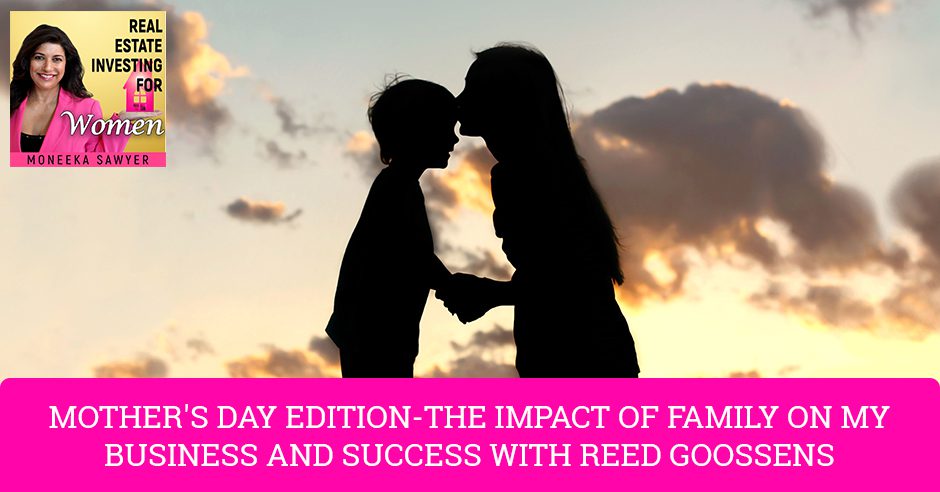
Many see investing as a male dominating world but for Moneeka Sawyer, a real estate investor and author of Choose Bliss: The Power and Practice of Joy and Contentment, it is an industry where real estate women like her can be influential as well. She joins Reed Goossens as she shares how her experience recovering from an accident and her family have a great impact on her business’ success throughout the years. Moneeka also wants to use this opportunity to empower women in the industry and show the world what they got.
—
Listen to the podcast here
Mother’s Day Edition – The Impact Of Family On My Business And Success With Reed Goossens – Real Estate Women
Real Estate Investing For Women
Ladies, I hope you had an amazing Mother’s Day weekend. I was trying to think of what I could do to honor Mother’s Day because I feel like it’s a very special holiday. I always want to honor our moms who supported us to become the women that we are now. I was on Reed Goossens‘ show and he did the most amazing interview, where he brought out so much about my family that hasn’t been shared. Since I think of moms as the core of the family, I thought of featuring a show about family, what it means to me and how it has impacted my life. Hopefully, it’s inspirational and helpful to you also. Enjoy the show.
—
I have the pleasure of speaking with Moneeka Sawyer. She is a lifestyle-focused real estate investor with an emphasis on helping more women succeed in the real estate industry. Moneeka has been investing for many years and she has truly created a life-by-design business, where she only spends between 5 to 10 hours a week working on her business and helping inspire other people to be more successful in real estate. She’s also the bestselling author of the book, Choose Bliss: The Power and Practice of Joy and Contentment, which was honored at the very prestigious Women of Impact Quill Award. I’m pumped and excited to have her on the show to share her incredible experience and her insight and knowledge. Moneeka, welcome to the show. How are you doing?
I’m doing great. Thank you so much for having me, Reed. I have to say one correction that’s worth mentioning. It’s 5 to 10 hours a month.
I must have skim-read that part.
That’s what people assume and that’s why I like to point it out. It’s amazing what’s possible. We can do 5 to 10 hours a week. We could also do 5 to 10 hours a month. It’s what’s good for you.
Tell us about more of your upbringing and how you value a dollar through your childhood. That’s an important step to start with to craft the story around what you created.
My story begins with my parents. My parents were immigrants. They came to the country with $200 in their pocket and a dream of building a life that was amazing for their children. They had heard that the golden ticket to wealth in the United States was to invest in real estate. When they got here, they immediately started saving their nickels and dimes. My mom is an MD, but she couldn’t work as a doctor here. She would sew the curtains for her house or the pillows for her sofa so she could save all those nickels and dimes but still have this beautiful home that she would expect for herself as a doctor, and then I was born. Their hearts were filled with love, joy and excitement for this new child. They’ve invested in their very first real estate investment project. It was land. They stayed focused on that their whole life and fast forward many years, they paid for my college education through real estate.
I grew up watching that whole thing. It was a topic of conversation. This is an interesting thing that happens in Indian families. Not all Indian families, but many. We do have a very open conversation about money. I got to hear about the stresses that my parents were going through, whether my mom needed to go through residency again to be able to practice here or my dad being discriminated against at work. They came here in 1967 and we lived in Ohio. It was a very white community. People were still very kind and they still had great jobs, but there were also people who were not kind who discriminated against them. I heard all of this stuff.
Bliss is a deep sense of joy, contentment, and that confidence that no matter what happens in life, you can handle it. Click To Tweet
One of the things that impressed upon me was that it was important to me to be able to make money myself and not be dependent on anybody else, which is an interesting dichotomy because Indian women wanted me to have an arranged marriage. A man was supposed to be able to take care of me, but then on the other side, I needed to be fully independent. Talk about mixed messages. What was interesting is my mom and dad would not let me work. I was a girl. I needed to study. I needed to go to college. I needed to get married, but I also needed to be a professional so I could support my husband to make a lot of money.
As I was growing up, I wasn’t allowed to work. I wanted to. I would read Entrepreneur Magazine. I don’t know if anybody remembers the old Entrepreneur Magazine where they had all these binders of businesses that you could start. You can pay $99 and you would get this business startup pack for anything, a wedding planner or a banker. There are all these things. I would buy them. I was so hungry, but I wasn’t allowed to work. I wasn’t allowed to go out there. My very first job was at Jack in the Box when I was seventeen and I bagged. I felt like I was dating because that was another thing I was not allowed to do. I was going to have an arranged marriage. I would sneak out so I could go work. It was so naughty. I had developed an appreciation for money. Dad had started to talk to me about real estate when I was very young. I got my very first allowance, which was very little. Even in those days, he taught me about budgeting. I opened a checking account and started writing checks. I was very fortunate that way. He taught me a lot about the practicality of money and the role that it plays in our life.
Thank you for being vulnerable and honest. That’s probably the most intriguing dollar story I’ve heard. I get so many people on the show like, “I have mowed lawns.” I was like, “Don’t say mowed lawns. Say something better.” You’ve had the opposite of having to try and fit in as a kid and probably see your other friends out working at McDonald’s or wherever it is. They had money to buy dresses and go out on the weekends and be teenagers. You had the other traditional side of your upbringing and your heritage, which is important. Not to pull you that, but it’s what your values that your parents wanted to instill in you. It’s very humorous that your parents were like, “You got to make money and land on your own two feet, but you can’t. We want to give you an arranged marriage.” What were the conversations around the dinner table when you wanted to break away from being that first-generation American and break away from the norms that probably your parents were brought up with back in India?
It was hard. I’ll preface this by saying, I am absolutely crazy about my parents. They’re the two most beautiful people on the planet. I am so fortunate to have had them guiding me through my journey in life, but growing up was hard. It was hard in our environment because I’m not white and we grew up in very white areas because of my parents’ jobs. Out in the world, it was tough for me. At home, that was my sanctuary and my parents were so scared. They used to watch General Hospital. They saw all the drama on television. Because they hadn’t grown up in this country, they were scared that horrible things were going to happen to their girls.
Choose Bliss: The Power and Practice of Joy and Contentment
They held on so tight and were so protective. Very young, I became very secretive. I would have to sneak out to go do my job. I sneaked out for everything. I didn’t talk to them about anything because I was afraid that they would be so afraid, then they would hold me up in the tower of safety in our home and I couldn’t do anything. I couldn’t go out with friends. I couldn’t work. I was in all honors classes and my honors classes started at 7:00 in the morning. My mom and dad were afraid to let me go to honors classes because “Who goes to school at 7:00 in the morning?” I did. I wanted to get into a good university. You can see this misunderstanding of what life is like.
Indians do this too and a lot of cultures do this, yelling and screaming on top of our lungs, “I love you, but you are so wrong.” I don’t think it was dysfunctional. It was truly authentic and honest because we got to the bottom of stuff and there was never a dearth of love for us. No matter how angry we got, we were a unit and we loved each other like crazy. We always had that as children growing up. Even now, I never felt that there is a moment that there is no unconditional love in my life and that’s because of them.
I will also reflect back to you that I came from a very similar family, not necessarily traditional. We live in Australia. It was Aussies being Aussies. It’s that whole unconditional love and bringing in. I even remember bringing my wife and she came from a broken family, and how intense it can be sometimes. She felt outside like, “I didn’t have this growing up. You’re very lucky, not many people have this.” I was very similar to you that there was that unconditional love. Everything that they thought came from a position of love and they said, “I want to protect the girls and they can’t do this, that or the other,” but it probably made you very cheeky in terms of going out and escaping, and having to do things on your own ways to feel like you had a life.
I’m very independent, but it was also interesting. I went to UC Berkeley and I had a lot of my other Indian girlfriends who had had a similar experience. They went to UC Berkeley and we were all like, “We get to hang out at school.” What was funny was that I went out there and I was like, “I’m here to learn. I wanted to start a business my entire life. I’m going to go to business school.” For UC Berkeley, you have to re-apply for business school. I was like, head down, “I’m going to make this happen. My life is my life. I’m in control. I don’t have to sneak around to work or study.” I was so excited. All my friends got into drugs and alcohol and not in a bad way. They were all still smart. It’s just college kids being college kids, but they were all into the party. All my old childhood friendships fell apart because my version of freedom was creating the life of my dreams and their version of freedom was trying everything possible under the sun. It’s a very different perspective. I’m tenacious. I can be crazy, but it was all very focused on, “There is a life that I want and I’m going to go get it.”
Many people do it and myself included. When that freedom does come when you go to university, you do tend to rip the lid off. That’s not necessarily a bad thing because you then test your boundaries and you test where you need to pull your socks up, “You have stuff up. You’ve partied too hard over here. Now, you need to pull your socks up because you’re grades are failing.” I can sympathize with your friends but also with you in terms of having that freedom and understanding, “There’s so much more control of my life.” Even when I went to high school with the deputy principal’s son, I was very goody two shoes and not doing anything when I was a teenager.
When going to university, I started like, “Girls and alcohol. Holy crap,” but then realizing like I’m still very studious and my grades were suffering. You had to make that choice in life. That’s interesting when you were at university back to the story of the girlfriends from Ohio, going to UC Berkeley and then having different perspectives. You do eventually drifted away because of different priorities in life. That’s okay. That’s the point of going to university. The point of figuring yourself out is for all these things to happen. I love that story.
It’s funny because sometimes I think I robbed myself of all that fun. I was so focused on what I wanted and I didn’t slow down and notice that there was fun out there. I could go party. I could have it all. It didn’t have to be mutually exclusive. As I’ve gotten older, I’ve relaxed quite a lot. I’m not quite that focusing crazy.
Don’t wish away those moments that you’re going to miss so much when they’re gone. Don’t wish away your life. Enjoy every single moment. Click To Tweet
It’s a good segue into the bliss. What is bliss? Part of what I’m hearing from you at a young age is what you thought you had to do in order to be successful. A lot of entrepreneurs that I interview on the show do get the blinkers on and are just crazy. They take certain priorities that are business over health, life or love, and things start to whine. They realize that they don’t have a life. The purpose of all that we do, whether it be at university or in creating something from nothing in businesses. It is to enjoy the journey because it’s not ultimately the mountain top we scale, but it’s you only live one life. Enjoy it now. We have this social media anxiety. We always got to be comparing ourselves and “I always got to have something more to do.” It’s such an interesting bliss that I want to talk about with you because I know you’ve got a lot to give on that piece.
We only get to the mountain top for a little while and then we look around and we got to go back down. If you don’t enjoy the journey, then all you get is that ten minutes on the mountain and then you’re climbing another mountain. Bliss is a deep sense of joy, contentment, and that confidence that no matter what happens in life, you can handle it. It’s about emotional mastery and emotional resilience. That’s how I’m defining bliss. My journey or my passion is to help real estate investors, women, business owners, people in general, to let you enjoy that journey. Let me tell you a story. Your story is perfect, but I’m going to tell you another one.
I was in Iceland and we wanted to go see a glacier. It was a two-and-a-half-hour drive. We decided to do it. We were driving along and there are two ways that we can approach this. We can drive as fast as possible and make the two-and-a-half-hour drive two hours, or we can drive below the speed limit. We’re on vacation. Everybody is like, “Really?” We’re driving and looking around and enjoying the scenery, the terrain and the way that it changes. Here, it’s plants and waterfalls. Here, it’s lava. We’re getting out, taking pictures and stopping for lunch. The experience of going to that glacier was completely different by doing it that way. We had this beautiful journey that ended up taking us three hours. We got to the glacier. We hung out there for two hours. It was gorgeous and worth the journey. We drove back and enjoyed the drive back too. We went to dinner. Our next goal was to find a hotel and go to dinner.
That’s a good metaphor for life. Are you looking around? Are you having good meals? Is it okay that you take longer so that you can enjoy that journey? When you get to that goal, as fantastic as it is, being at that goal only lasts for a little while and then there’s another journey to another goal. Do you want to live your life jumping to ten minutes of bliss or do you want to enjoy the entire journey so you can enjoy all of it? That’s what I want people to get is whether it’s in real estate, whether it’s with your families, people are like, “I can’t wait until my kids go to kindergarten.” Don’t wish away those moments that you’re going to miss so much when they’re gone. Don’t wish away your life. Enjoy every single moment of it.
Have there been any losses in your life to understand that mindset shift? You do slow down because you clearly are the person who is hungry, who wants to hustle, who wants to prove to their parents that they can go up, do it and stand on their own two feet. Has anything happened in your life? You can say no, getting older and all that stuff. I know personally, I lost my mom. I’ve got a story for you that I wish I was at the life I live now before so I can spend more time with her. I live in America. She’s in Australia and I got home three days before she passed. I did a whole episode on priorities versus goals and how that we can sometimes shift them. Was there anything that shifted along your journey in the way that made you realize, “This is not a sprint. Let’s take the long journey. Let’s do lunch. Let’s enjoy the scenic route?”

Real Estate Women: Find ways to make the hustle livable so that you don’t burn out. You don’t want to get to the other side and be completely burnt out.
I have been very fortunate I have not experienced loss yet. We all do and I know that it’s coming. As I mentioned before, I’m madly in love with my parents. I want lots of time with them and with my sisters and nephew. We’re very family-oriented. That’s been ingrained in me, but the hustle didn’t stop. It transformed. When I was in a horrible car accident, I lost my legs. I was a professional dancer. That was the one thing I was allowed to do. Since I was five years old, I was dancing. I had a world reputation. I danced all over the world. When I was 21, I was in a horrible car accident that was not my fault. Someone hit me and my hips got dislocated, my back got thrown out and I became a cripple for a couple of years. I should have been into a chair but that’s another story.
I went through a huge depression during that time because everything about my life suddenly shifted. I just had gotten out of college. My new job disappeared. My fiancé left me because I wasn’t the same person anymore. I was a dancer dancing six hours a day. Now, I had no exercise. The chemistry in your body changes so fast. I gained so much weight, which aggravated a lot of the problems. I went through this horrible time. Fortunately, somehow I ended up getting married. My husband is a dream guy, but even marriage didn’t fix it, even having the money and taking care of. This is one of the things that we do as people. When things go wrong, we think, “If I have the love of my life, everything will be better. They’ll take care of it. They’ll save me,” whether it’s a man or a woman. I had that mentality from my upbringing. I got married to this beautiful man, but he didn’t fix it. He couldn’t. Nobody can fix your life. Only you can fix your life.
I remember I had a moment when I had gone through a huge depression. The pain wasn’t going away physically. My legs still weren’t working quite right. It had been 5 or 6 years. My marriage wasn’t fixing all the problems. I remember one day, I was lying in bed. I had been in bed for a week. I had been depressed. I had been sleeping. I heard my mom’s voice in my head. She said, “Moneeka, get out of bed and go get some air. You’ll feel better.” I had the covers over my head. I pushed them off of my head and swung my legs around to get out of bed to go for a walk. As I tried to stand on my legs, I fell to the ground because they were so weak, they couldn’t hold me. At that moment, I thought, “I can’t do this anymore.” I prayed and said to God, “Either have mercy on me and bring me home or teach me how to live.”
A girlfriend called about an hour later, who I hadn’t heard from for years. She turned me on to a coach and this coach taught me how to live. The very first thing that he talked to me about and I do this in all of my coursework is, “What are your values? Design your life not based on anybody’s expectations, not even your own because your own have often been given to you, but create a life based on those values and what’s important to you.” What was important to me was my relationships. No matter how much I wanted to hustle, how important a business was to me, my highest value was my relationships. That was what slowed me down and made me realize, “I can’t spend 80 hours a week. I have the capacity, but I can’t do it because my life feels bad.”
What do you say to those people who are in the hustle right now? They are trying to make ends meet. They are putting one foot in front of the other. They are in the grind right now. For you and I, we’ve both been in that grind. We’ve both been in that 80, 90, 100 hours a week. For me, personally, working a W2 job, trying to get out and become financially free in these situations, and all sort of stuff. What do you say to those people who are in that right now? How do you give confidence that it’s going to be okay?
The very first thing that I will talk to them about is, “What are their values? Why are they doing that hustle? What are the values that you’re trying to satisfy? What’s the goal that you’re trying to get to?” Find ways to make that hustle livable because, for some of us, it’s necessary. It was necessary for me. It was necessary for you. Find ways to make that livable so that you don’t burn out. You don’t want to get to the other side either and be completely burnt out. Set milestones for yourself. You’re hustling. You’re working an 80-hour week. When does that stop for you? Is it a year? When are you going to re-evaluate? The other thing is you may be hustling. You may not be hustling towards your goal. Things may not be working.
For me, if you’re in the hustle and you’re working that hard, every six months, re-evaluate, “Is this hustle going to get me where I want to go?” That way, you can pivot or refocus if you need to. Keep going. You want to keep re-evaluating and then get to that place where it doesn’t become a habit because hustling is adrenaline-filled. It can be exciting on many levels. It can become a habit and a distraction to what you want in your life. Those are the sorts of things I would tell them.
It’s so important to keep a level mindset in terms of running your own race because so many people compare themselves to other people. Back to your analogy of going up in Iceland, going up to that glacier, taking the long journey and it’s your journey. That’s okay that it’s your journey. It comes a lot from being self-aware. You have to take care of yourself mentally to allow yourself the mental freedom to not compare yourself constantly to other people because that is what we were. We’re always in this constant struggle of like, “So-and-so is doing this and I’m in my job. I haven’t broken free. I haven’t got financially free.”
No one else can fix your life. Only you can. Click To Tweet
It’s okay that you’re in that position. Give yourself some permission to allow yourself to be okay in that situation. It will change and know it will change over time. I think people forget that because they’re only looking at the 4×4 inches box. They’re not looking at the big picture. Sometimes you do have to take that time to make sure that you’re checking in, recalibrating if need be, and understanding that this needs to be sustainable growth in a hustle, not necessarily a burning out type of growth.
My youngest sister had a little boy. He’s the dream of everybody in the family. He’s adorable. His mom said something about his eye was a little bit off. They got it fixed or whatever. My other sister said, “Everybody should realize that he’s perfect the way he is as long as we don’t compare to other people.” It’s true. That was so profound. We’re all in our perfect place and we are perfect as long as we don’t succumb to comparing ourselves to others. Our life is ours. You may not feel like everything is going perfect, but trust that you are perfectly where you are and that you will get to where you want to go. It doesn’t matter what anybody else is doing.
I’m going to stuff up the quote, but I don’t know who the author was. It talks about LA is three hours behind New York, yet it’s three hours in front of Hawaii. It’s not that Hawaii is late or LA or New York is early. It’s their own time. You’re not late. You’re not early. You’re just on time because you’re running your own race. It compares the time in the world and it’s so true. You’re not late. You’re not early. You’re on time and it’s your time. It’s your journey and that’s okay. Tell me more about what you do in terms of how you’re giving back to the wider community. I bet you’ve got a great book that has got an incredible award. You’ve got your show going on and you’ve also got your real estate investment business. Talk about those three facets of what makes you tick now in the world.
I have a real estate show called Real Estate Investing for Women, where we focus on mindset, heartset, emotional mastery, money smarts and real estate strategy. It’s a very holistic approach to creating a blissful real estate business and creating wealth that way. That’s my big focus. I invest in executive properties. If anybody ever wanted to know what that is, come listen to my show. I have very streamlined strategies on how to keep everything blissful. I have that going on. One of the big bliss things for me is I give back to the community in teaching right through my show. I also am very involved in a school for the poor in India. That’s where a lot of my money goes. This is one of the things that we think about like, “Why are we building wealth? What does it allow us to do?” For me, it gives me the time freedom and financial freedom to do things in the bigger world. I can run my show. I can help children in India. I can spend more time with my family and my nephew or my friends. Those are the sorts of things that I’m doing.
My real estate investing business could retire me now. I have the time freedom that I have always wanted. The show is my big thing. I do have a couple of other books. If you look up Moneeka Sawyer on Amazon, you’ll find several books under my name. I released another one called Real Estate Investing for Women and I have a fun one that’s called Your Amazing Itty Bitty Blissful Real Estate Investing Book. It’s 40 pages. That’s also available on Amazon. Those were my three big things. I built my real estate business in about 25 years. I put together a report of how did I do that so that I could retire. I started with $10,000 and now I can retire. I’ve put together that report. That’s available to your audience for free if they would like it at BlissfulInvestor.com.
You’ve got a whole brand in and around educating women. Why is there a lack of women in the real estate space? I was even looking back at my shows. I’ve only had maybe less than a dozen women over 220 episodes.
It’s interesting because real estate agents, there are a ton of women, but as far as being investors, I don’t know. Maybe we haven’t been educated right. I’m not sure what’s going on there. It’s so frustrating to me, which is why I am focused on women. The other thing that’s very interesting is that we see investing as a male world and it can be intimidating. What women don’t realize is that we are brought up in America. We are brought up in a male-dominant world. We are forced to learn how to succeed in that environment. We learn the skills. We learn the way to think. We learn all of those male-dominant ways of doing business.
We also inherently by default have the feminine ways of doing business. We’re intuitive. We can see the bigger picture. We can multitask. Men can multitask too. It’s just done differently. I just want to clarify that. We bring different skills to the world and the business world. As women, we have the benefit of having male skills as well as female skills, but we don’t value our female skills. If you marry those two together, we are amazing investors. We have an understanding that most men don’t have access to unless they plug into the other side. We’re amazing investors and I want to support that.
I have a hard time finding women speakers for my show for that same reason. It’s time for us to step into the leadership of our own lives and create the financial freedom that we can have and deserve. Everybody deserves that. I don’t know either because I was brought up in a household where I was taught all about money. I feel very fortunate. I didn’t realize how many women are like, “I don’t get it. I don’t know how to pursue that.” A lot of education is by men with the language that feels uncomfortable.
I think of this historically where the man is going out to be the breadwinner and the female is at home taking care of the kids and, “Don’t you worry yourself with the finances. I’ve got it sorted.” That’s completely shifting and hopefully, it continues to shift. You’re trying to put a megaphone up to the issue and enticing more people into the world of real estate, particularly female, a popular part of the population. It’s important because it’s empowering. The more people can be empowered to learn about something, particularly the female part of the population has not had the opportunities because of the way we’ve been brought up for many years. To want to take that stand and say, “I want to learn about something. I want to learn about this financial freedom. I want to learn about creating financial wealth for myself and my family because that’s the whole point, to give me time freedom to spend with my kids, to spend with my family, to grow as a human being.” You talked about feminine energy and that is important. We all have it in ourselves. It’s just an ability to tap into it in certain ways. You’re doing an incredible job of giving a megaphone.
The school that I support in India is a coed school. Because here’s the thing with empowering women. If a woman is fighting and screaming, “Pay attention. Respect me,” people are going to hear, but people don’t learn by words. We need the support of our entire community and that means our men. If men are not going to support the empowerment of women, it’s going to be a huge, long journey. As the men come on board, now we all are lifted up together. Every single one of you who is willing to be a voice as an ally of women’s empowerment, we need you and appreciate you. Your voice is important too.

Real Estate Women: We’re all in our perfect place and we are perfect as long as we don’t succumb to comparing ourselves to others. Our life is ours.
There are some weird statistics out there in the S&P 500. There are only less than fifteen women who are CEOs, yet more than 25 of those CEOs are called David. It takes all boats to rise. Everyone needs to be pulling in the right direction, not just the female community saying, “We want to do this.” It’s about also the other side of the coin, the male community saying yes and acknowledging and telling that community, “We’re seeing and hearing you. You have a place at the table and you should always have a place at the table.”
We all value that. Men are greatly improved and evolved by recognizing that also. Like I said, my husband is an incredible, beautiful human being and so much of that is he values me. He’s not just an incredible, beautiful human being to me, he’s also respected everywhere because he has a good understanding of what respect looks like for everybody.
I have one question before we dive into the top five investing tips. What are your plans for 2020 and beyond, both business and personally?
I’ve got a summit coming up, my very first summit. It’s online virtually. I was originally going to have it live in person and then I felt very limited by that. I want to be able to reach as many people as possible so making it virtual allowed me to do that. I’ve got that going on. I’m probably going to release a book because that’s what I do. I love being an author. Look me up as Moneeka Sawyer on Amazon to see what happens there. Everything in life is a surprise. I love the new surprises that I’m inspired to do. Honestly, I want to invest in one more property. My goal is to be able to retire in Silicon Valley. Right now, I could retire. I would have to move. I want to be able to retire here so my husband can continue to be supported in working because he loves being a software programmer and this is where the work is. I’m going to be buying a couple of more properties, probably changing my strategy from an equity strategy to a cashflow strategy. Those are some of the things that I’m learning about, growing in and excited about.
At the end of every show, we like to dive into the top five investing tips. What is the daily habit that you practice to keep you on track towards your goals?
I have a good morning routine and anytime I miss it, I feel out of sorts. It’s super simple. I can go through it in a couple of minutes. I wake up and my alarm goes off and I push snooze. Everybody says, “Don’t push snooze.” I always push snooze and that time between my two snoozes is when I do my gratitude practice. I have a very specific way that I do that. Anyways, I do my gratitude practice, get out of bed, get dressed and feed the dog. My husband and I go for a beautiful walk together with the dog and have some coffee together. We make some eye contact before we split between for our days. I come home and I do some mindset tools. It depends on what I’m into. On that day, maybe I read, watch a video on YouTube or recite something. I do some positive affirmation and then I sit down at my desk at 10:00. I get my exercise, meditation, affirmations and gratitude. I get it all.
It’s so important to keep that morning ritual sacred for yourself because it helps you start the day and get involved into the next 8, 9 or 10 hours, however long you work for. Who is the most influential person in your career to date?
It’s my dad.
In your business, there would have to be an influential tool. When I say tool, it could be software or it could be a physical tool like a phone or a person. What is the most influential tool in your business on a day-to-day basis?
Books.
Books you’re reading or you’re writing?

Real Estate Women: You may not feel like everything is going perfect, but trust that you are perfectly where you are and that you will get to where you want to go.
I would say I’m reading. I’m always reading something. That’s not necessarily part of my morning routine, but at lunchtime, I can’t help it. I love to read. At some point during the day, I will read something that moves me forward to what it is that I’m doing tomorrow and what I’m doing in my business. I would say my Kindle, specifically.
In one sentence, what has been the biggest failure in your career to date and what did you learn from that failure?
I bought this place that I live in, my dream home. I bought it in 2008 and within six months, it lost 50% of its value. I lost $500,000 in six months. What I learned is it’s so important to stay blissful because my whole life would have blown up. If I didn’t have the skills that I had, I would never be where I am now, but instead, I engaged my bliss strategies, held onto the property and kept my head. It turned around and turned into a good thing. The truth is stay blissful, manage your emotions, be resilient and have mastery. Be very intentional about how you’re living you’re life. When things go wrong, be intentional about how you solve those issues.
Moneeka, where can people reach you to continue the conversation if they want to be in your sphere and want to learn more about what you do?
Moneeka Sawyer is where you find me everywhere, @MoneekaSawyer on Facebook and Instagram. You can go to BlissfulInvestor.com to find out about my books, my programs and my podcast is called Real Estate Investing for Women. You can find that anywhere podcasts are.
I want to thank you for jumping on the show. I want to reflect on the things that I took away from the show. I think the number one thing that I took away from the show is that no one can fix your life, only you can. That’s so important in this world of, we want to blame other people for the situation we’re in and not taking control and not owning up to your shit and turning it around. Blaming your parents, your upbringing, your husband or the dog. We all get into that mindset, but it’s also making sure that you’re self-aware enough to take yourself out of it. Have your morning rituals that are going to keep you grounded and make sure you are in a blissful state to not be so reactive in the situation, and understand more what the long-term game is. Did I leave anything out?
No, that was beautiful. Thank you for that summary.
Thank you so much for jumping on the show. Enjoy the rest of your week and we’ll catch up very soon.
Thank you.
—
There you have it. It’s another cracking episode and jam-packed with some incredible advice from Moneeka Sawyer. Please make sure you check out all her stuff. She’s all over Facebook. She’s all over Instagram. She’s all over the Google webs in terms of making all her books on Amazon. Make sure you head over to BlissfulInvestor.com or check out her show, Real Estate Investing for Women on any way you podcast. I want to thank you all for taking some time out of your day to tune in to continue to grow your financial IQ because that’s what we’re all about here on this show. We’ll do it all again next episode. Be bold, be brave and remember, go give life a crack.
Important Links
- Reed Goossens
- Choose Bliss: The Power and Practice of Joy and Contentment
- Real Estate Investing for Women
- Your Amazing Itty Bitty Blissful Real Estate Investing Book
- BlissfulInvestor.com
- @MoneekaSawyer – Facebook
- Instagram – Moneeka Sawyer
Love the show? Subscribe, rate, review, and share!
Join the Real Estate Investing for Women Community today:
______________________________________
To listen to the EXTRA portion of this show go to RealEstateInvestingForWomenExtra.com
To see this program in video:
Search on Roku for Real Estate Investing 4 Women or go to this link: https://blissfulinvestor.com/biroku
On YouTube go to Real Estate Investing for Women
Moneeka Sawyer is often described as one of the most blissful people you will ever meet. She has been investing in Real Estate for over 20 years, so has been through all the different cycles of the market. Still, she has turned $10,000 into over $5,000,000, working only 5-10 hours per MONTH with very little stress.
While building her multi-million dollar business, she has traveled to over 55 countries, dances every single day, supports causes that are important to her, and spends lots of time with her husband of over 20 years.
She is the international best-selling author of the multiple award-winning books “Choose Bliss: The Power and Practice of Joy and Contentment” and “Real Estate Investing for Women: Expert Conversations to Increase Wealth and Happiness the Blissful Way.”
Moneeka has been featured on stages including Carnegie Hall and Nasdaq, radio, podcasts such as Achieve Your Goals with Hal Elrod, and TV stations including ABC, CBS, FOX, and the CW, impacting over 150 million people.
The Secrets To Dating Money And Having A Friends-With-Benefits Relationship With It With Olympia Hostler – Real Estate Women

Having a good relationship with money is like finding a date. You have to overcome the fear factor and actually start dating it. You need to cozy up to it until you form a friends-with-benefits relationship with it. How exactly does this apply to the world of real estate? Well, for one thing, it helps that a lot (like a lot) of the people who know anything about money have been involved in real estate in one way or another. Moneeka Sawyer is excited to unpack this topic with Olympia Hostler, an award-winning business consultant and speaker who is known as the “Queen of Wealth.” Take a moment to listen to their conversation as Olympia reveals the secrets towards achieving time and financial freedom in the shortest time possible.
—
Listen to the podcast here
The Secrets To Dating Money And Having A Friends-With-Benefits Relationship With It With Olympia Hostler – Real Estate Women
Real Estate Investing For Women
I am excited to welcome to the show, Olympia Hostler. She loves working in playing in the realm of millions and billions. She is an award-winning business consultant and speaker of Fortune 500 companies. She’s a partner and a leader of the highest natural national securities program worth billions of dollars. By the age of 33, she was a corporate executive leading multimillion-dollar programs making more than $50 million in sales, facilitating sales for more than $10 billion, and leading teams of up to 100 people. As the Queen of Wealth, Olympia unshackles business owner’s freedom to scale their companies and fast forward their success without working harder or longer on their fastest path to freedom of time and money. Olympia, welcome to the show.
I’m excited to be here. Thank you so much for having me.
This conversation is going to be fun. Let’s start by giving a version of your story. Tell us about yourself.
I’ve done a lot of things in my life. I started out as a corporate executive at 33. That’s where we’re going to start our chronology. I quickly realized that Corporate America was not for me. I went off and started my own business consulting company. I’ve been doing that for over 25 years. I’ve helped all kinds of businesses, products, services and real estate. I’ve been in real estate for over twenty years as a licensed broker. I’ve had a partnership with CBS Television in New York for real estate.
Tell us more about that.
When we get our unconscious and subconscious mind on board, there are no limits. Freedom is all around us. Everything we do is free. Share on XThat was super fun. We did a groundbreaking state-of-the-art joint venture partnership and also a website. We spent $1.5 million on the website alone, creating these new searching technologies. We were the first to implement VOW or Virtual Office Website, which is collecting all of the other listings from the other brokerage houses and putting those into our website. We also created the first real estate television show in New York. That’s what we did. It was a lot of fun doing it.
Have you ever noticed that anybody who knows anything about money has been involved in real estate in some way?
Yes, I have. It’s a training ground.
I read on Instagram that 90% of the millionaires got that way through real estate. It’s the original get-rich strategy. I love your topic. This whole thing of money as friends with benefits. I want my money to be friends with benefits. Tell me more.
To have friends with benefits relationship, first of all, we need to start cozying up to it. We need to stop being afraid of it if there is a fear factor, which many people have, and start dating it. To do that, we need to get rid of the obstacles that are in our way. Those obstacles typically come in the form of mindset, heart set, and body set money blocks, as I call them. These blocks are programmed in from our experiences in life, from the people we’ve hung around when we were younger, our parents.
There are all of these blocks have been created. Whether we have created them ourselves or our parents and other well-meaning loved ones, it was their blocks and then we adopted them. The key to having that awesome relationship, friends with benefits, is we have to get rid of that stuff. If you think about it, if you wanted to date people, you have to get over your fear of dating, but you also need to get out of the house. You need to get out and start doing some things. Addressing those core blockages, clearing them, and resetting them is going to be beneficial in your entire life, not just with money.
Talk to me about unshackling. You can have the business that you want without working longer or harder.
This is super fun. We started talking about the shackles with our favorite question. The shackles are the ones that we put on ourselves. How are we going to unshackle ourselves? One of the best ways to do it with a business, in particular, and the real estate business is a great example. We have to be able to know what our big worldly why is. Why are you doing what you’re doing? That is what will drive you. Why are you doing it for the world if you’re doing it for the world? There’s a second why that I’ve created called my self-care why. Why are you doing it for yourself? You might know it, but if you’re not in touch and connected with it, then it’s a hard road to unshackle yourself because you’re always wondering, “What’s the point of this? What’s the point of that?” If you’re not consciously thinking that, you are definitely unconsciously thinking that. It will drive you so you’ll never work another day in your life. It’ll be fun and play, and who doesn’t want that?
You ask a good question which is, what’s more important, time, freedom or money? From my perspective, the freedom of time and money is a thing that I’m reaching for, but I like how you distinguish them separately. Tell me about that.
We all know that there are different types of resources. Some are non-renewable. They have a finite amount, and that would be time. Money is a renewable resource. You can always get more money. You can never get more time. Freedom spans both. Freedom is very subjective. One person’s freedom is not another person’s freedom. That one can go either way. Freedom has the potential to always be there. In that regard, it is renewable because it’s always there. Whether you’re tapping into it or not, that’s up to you.
I would define freedom as time and money. Having enough time and money to do what I want, where I want and with whom I want.
That’s how I define it. Many people will go around and say, “I want freedom.” If they haven’t defined what it is, then you haven’t given your unconscious mind the target. We were speaking earlier about neuro-linguistic programming. When we get our unconscious mind and our subconscious mind on board, there are no limits. Freedom is all around us. Everything we do is free.
We’re talking about this relationship with money. One of the things that happen with investors is they have a house. They want to rent it out. They’re like, “What should I ask for the house?” They list it and put up this beautiful ad. They list the price that they think is right in the market and people are not knocking on the doors. The very first thing that they say is, “I priced it too high,” which is not the first place that we should be going. The first place we should be going is if you want to think about it, “What is it that I’m saying in my ad that’s not attracting the right person for that house,” and not, “Is this too high?” Price is only one factor when you’re renting out a house. Could you talk to us about this relationship with premium pricing?

Dating Money: The price you pay for not detoxing your money blocks is high because these money blocks are also driving the show for every other area of your life.
To talk about premium pricing, we need to understand pricing’s place in the marketplace. My commercial real estate broker, the first one I ever had who I worked underneath, told me, “Olympia, I can make any deal happen. It’s a matter of price, terms and time.” It’s one of those three. If your price is right, the other two can float. When you’re not getting the traffic that you want, I wouldn’t go first to price. If you’ve done your research and you know you’re in the money, then stick to your guns. Maybe it’s something else. Maybe you haven’t painted it. Maybe it needs a fresh coat of paint. Maybe something’s happened in the neighborhood and you need to do a little research and know what that is. I would look at many other places before I would look at the price. I would say stick to your guns on the price.
With commercial real estate, it was price, terms and time. In residential, that whole heart set piece is a big distinguisher on how we view a home. When I’m looking at something and people aren’t knocking on my door, I don’t immediately go to my is too high because I know, based on what the market conditions are, that I’m not. I’ve done that research. I’m not evoking an emotional response in the people that are looking to buy a home. A lot of people will say, “I need a three-bedroom, two-bath, this many square feet, this close to my work, this kind of school.” They have all their statistics. The reality is that there might be five houses on the market that meet the criteria. What was different?
It could be some of those things that don’t get checked off that’s on their list. The biggest thing is, are they having an emotional response to your home that you’re providing for them? For me, yes, maybe it needs a coat of paint, but that’s all external to the real indicator which is, are they emotionally attached? How can you get them there? Your premium pricing isn’t about pricing. It’s about their emotional attachment to the product that you’re providing. Would you agree with me on that?
I agree with you. If you can appeal to their five senses when they walk in the door, this was something I used to do when I do open houses. I would always bake chocolate chip cookies. No wonder I was so awesome at sales for real estate. People come in and they automatically get that emotional response. They’re like, “I like it already.” They haven’t even opened their eyes necessarily. If you can appeal to the senses, that’s going to go right to the emotions.
I used to do the cookies thing too until everybody started doing cookies. I don’t know who started teaching that. I was doing it long before. That was by mistake. One time, I brought brand new cookies from Mrs. Fields. They are home-cooked cookies. I brought them in and served them, but they were fairly fresh. I hadn’t baked them there. People were like, “I love the smell of cookies.” I then started baking them. People then started teaching this. I’m like, “Now everybody’s doing it.” Now I bring stargazer lilies or fragrant candles or something. I might have a fire in the fireplace. It’s like touching their senses and some different ways that are a little bit unexpected and make them feel something new. Talk to us about detoxing money blocks. What happens? What do you give up if you won’t do it?
The price you pay for not detoxing your money blocks is a high price because these money blocks are also driving the show for every other area of your life. The program that creates the money blocks is also creating blocks in relationships, spirituality, personal growth, health, all of those areas of life. You’re going to have some glitches in more than just your money. Why not take care of the money piece, get squared away, get a clearing done, get a reset done. Once you’ve reset these programs, they are running in the background just like they are now. Now, they’re running in the background. They’re running amuck, but you don’t think about it. You don’t have to give affirmations. It’s just happening. Once you change it to a more positive, healthy program, it’s as if you flip the switch, then you don’t have to think about it. You don’t have to say one million affirmations. It’s running now. You have your new normal.
How do you do the detox? I know that we’re not supposed to talk about processes but I’m curious.
I use neuro-linguistic programming. I use trauma recovery techniques because I treat money like a trauma. I’m training from another business that I own in trauma recovery and helping people recover from abuses, accidents, surgeries and pain. I’m using brain science and resetting the nervous system of the body from being in a fight-flight-freeze response. I’m doing that. At the same time, I was changing the program using neuro-linguistic programming. We’re resetting false beliefs and limiting decisions. Stuck emotions is a huge one, conflicting parts, and strategies that have gone amuck. It depends on what’s happening with the person, which technique we’re going to use. Almost always, everyone is going to need a roto-rooter job on the top five stuck emotions.
What are the top five stuck emotions?
If you don’t have the money you want, you don’t even have to look at the symptoms. You have money blocks, period. Share on XIt’s anger, sadness, fear, hurt and guilt. Those are the top five. I was working with a client on this. We’ve gone through those, and those are just the top five. We then go into the next layer. The next layer is usually some flavor of abandonment, rejection, shame, and those types of things. The top five have to be cleared in order to get to the others because the others are like a house of cards. They’re based on those other five. Typically, those are relationships. You knock those legs out and then you are left with these, then those will clear much easier.
Many of the ladies that are reading this are saying to themselves, “I’ve done a lot of work on this. I don’t have those money blocks.” Our money blocks are like blind spots. Even if I look at myself, and as you’re talking, I’m thinking, “I’ve made multiple millions of dollars. I’m a very successful businesswoman. I’m proud of that.” I have hit a plateau in my life. It’s such an interesting thing. There’s the next level for me. I’m trying to figure out how to get there. I realized that I’ve dealt with a lot of my money blocks, but there’s more to go because otherwise, I wouldn’t be at a plateau. What prevents us from seeing those blind spots? Help us to be motivated to look at that because it can be a little bit scary, overwhelming or even intimidating.
It could be a blind spot because we are not consciously aware of it, or we have been consciously aware of it and we don’t want to go through the pain, the challenge or the hardship to clear it. We sweep it under the rug. It doesn’t matter which scenario is active. It’s the same way to clear it. What happens is the blind spots are there to protect us. It’s our nervous system that has activated our fight-flight-freeze response, which causes a lot of things to happen in our mindset, body set and heart set. Things like pumping our body with adrenaline and cortisol. It feels like you’ve got your finger in a socket 24/7. You’re pumped up because your mind, body and heart think that you’re going to be chased by a saber-toothed tiger.
It’s the reptilian part of our brain. It’s right about here. It’s called the amygdala. Welcome to your amygdala. It only knows the input from these five senses. It will determine, “Am I safe or am I in danger?” It can create a blind spot if you’re in danger. It’s doing that to protect you. What it seems like is self-sabotaging. The key is to go into and calm the nervous system. Once you do that, then we can work on taking these patterns away. If you think about it, if you’re running from a saber-toothed tiger and somebody says, “Moneeka, I’d love to give you a hug. Could you please stop? I want to give you $1 million.” You’re going to go, “No, thank you. I have a tiger chasing me at the moment. I’ve got to keep going. Give me your number. I’ll get back to you.” I’m simplifying it but that is what it is.
How do we notice them? How do we know they’re there?
You have to look more at symptoms for that like, “Am I having a heart attack? Let’s go through the checklist.” I have a whole checklist called, “You might be a money blocker if,” and then all of these things. There’s the checklist, “You might be a money blocker if you are not doing all of these other things.” It’s all kinds of things. As you said, you’re at a plateau. That’s a sign. That’s a symptom. If you’re at a plateau, there’s a money block happening. Do you wake up to do work and you’re resisting? Any resistance toward money or money-making or having fun is a money block. There are many of them. If you don’t have the money you want, you don’t even have to look at the symptoms. You got money blocks. That’s the shortcut.
Tell us how about how we can rewrite our story with money so that it is a love story with a very happy ending?
It’s so nice because all we need to do is to understand a couple of things. One is, how you do money is a seven-step process. We need to make sure that we go back to the beginning and change it there, then that ripples through, because the love story or the horror story, as some people have. Whatever your story is or the oh-ho-hum story is related and directly coming from step number one. Most people think, “I can change my thoughts.” I’m going to say good luck with that because that doesn’t work. Thoughts are the 5th of 7 steps of how you do money. Steps 1, 2, 3, 4 all feed into 5. If you’re trying to change it here at 5, which is a conscious mind activity, what happened to 1 to 4? They didn’t change. They’re going to always keep producing a number 5. You’re always going to have those blocks.
You need to go back to the very beginning, which are these things we’ve talked about, the false beliefs, limiting decisions, stuck emotions, conflicting parts. Strategies are another fun one, the process of how you do things. To go back and change them at the beginning, that will ripple through. It will automatically change your story. You will find yourself saying things or doing things or feeling things differently. I’m working with one client and she’s tripled her income in six months. It’s like she got this superpower persona because we’ve been working on this at the ground level. It’s rippling through. The things she used to do that didn’t make money, she doesn’t do those anymore. She’s like, “I’m doing this. I’m doing that.” A new business I’m branding into is called Business Titans. She’s saying, “I’m a tiny Titan.” She only wants to play with other Titans. She’s like, “I’m not playing in the kiddie pool anymore.” It has this whole ramification and you will have that happy ending and the love story.
This is also true with relationships. This whole thing about you can see what’s going on in your mind, by what showing up in your life. It’s like your mind is a movie projector and it’s got a reel in there. Your life is the screen. Whatever the story is in the movie reel, whatever that story arc is, whatever those characters are, they are in the movie reel and they’re showing up in your life. You know if you’ve got a story you like in your head based on what’s happening in your life. It’s not an immediate translation. There’s momentum and things take a little time to change. Someone’s got to get in there and change the reel.
It’s interesting because I think that we forget to see that those symptoms are outside of us. They are glaring right in our face with big bright lights on a big white screen showing us what’s going on inside. If you’re only going to play with Titans and you’re noticing that your best friend is a cat lady, no offense to cat ladies, maybe the reel inside your head is different than what you think you want. This is true with relationships. That’s how I started this whole conversation. The relationships that show up for you, whether it’s your relationship with money, a guy or your children. Most relationships are being dictated by the reel that’s in your head.
The reel that’s in your head has a starting point where this whole process started. It’s the beginning of the movie. The beginning of the movie changes the trajectory. Every movie does not start the same way and the same story. How many times does Hollywood tell a love story? Boy meets girl, girl falls in love with the boy, boy and girl get married, and they live happily ever after. It’s the same story, but there are different beginning and different characters. That beginning is what launches us into where we’re going to go. I see that in relationships, in our health and with our money.
One of the newest realizations that people are having is that collaboration, which is relationships. It’s a fancy word, relationship, but collaborations in business are the new juicy carrot. In collaborations, you can get a lot more done in a lot less time, with a lot less money, and you can have more fun. You’re going to leverage lots of resources. You can potentially make more money as well, depending on how you’re leveraging those relationships into a collaboration.
I love that in business, we’re moving more towards collaboration rather than, “If I win, you have to lose,” which is the old way of doing business. A lot of the big business titans from the old world still built their businesses that way, but the new generation of businesses are realizing that collaboration is the key. I love it because we’re leading the world in that. You see it even in our small businesses. Collaboration with your tenant, vendors, sales, real estate agent, and all of those things. The better those relationships, the better the business is.
The business is all about relationships. You are not going to have a great business unless you have great relationships. That’s according to Olympia Hostler. That’s what I believe.
Let’s talk about what we’re going to be continuing on with EXTRA. In EXTRA, we would talk about how I can avoid being sucked into the busyness and distraction vortex to start supercharging my success. I’m excited about having that conversation in EXTRA. Could you tell us how the ladies can reach you?
I am so available at [email protected]. My phone number is (917) 288-7477. Do you want me to talk about the quiz now?
Tell us about the free gift.
The free gift is a quiz. Who doesn’t love a quiz? They are so much fun. You get to take this quiz at MyMoneyBlocks.com. Within two minutes you’re going to know your relationship with money and what’s standing in your way. Have fun.
Are you ready for our three rapid-fire questions?
I’m ready. Let’s go.
Give us one super tip on getting started investing in real estate.
I’m going to address this as investing in a business. A super tip is to treat your time like it’s money. Think about your time as I call them money blocks. How are you going to spend and invest your time? Treat it like it’s money.
What’s one strategy for being successful in real estate investing?
That would be to make sure that you know with as much certainty as you can what your ROI is going to be or can be. Weigh that against your risks because all of life is a risk–reward. Whether it’s business, real estate or relationships. It doesn’t matter what it is. Make sure that that ROI is what you think it’s going to be. Within your risk tolerance, whatever that is, that might change, but it’s within what it is now.
What is one daily practice that contributes to your personal success?

Dating Money: You are not going to have a great business unless you have great relationships.
Every morning, when I go in the shower, I sing a James Brown song. I dance and get the whole thing going. If for some reason, I haven’t done that, which is rare like if I’m in a super hurry, I miss it. I have different energy for the whole day.
This has been so much fun. Thank you for joining us for this portion of the show.
You’re welcome. Thank you for having me. I had a blast.
I can’t wait to talk about how to get out of the distraction and busyness vortex and supercharge our business. Ladies, if you are not subscribed to EXTRA but would like to be, go to RealEstateInvestingForWomenExtra.com. The first seven days are free. You can get this EXTRA. You can get a bunch of others, and then you can decide if it’s for you. Go check it out. For those of you that are leaving Olympia and me, thank you so much for joining us for this portion of the show. We look forward to seeing you next time. Until then, remember, goals without action are just dreams. Get out there, take action and create the life your heart deeply desires.
Important Links
- Olympia Hostler
- Business Titans
- [email protected]
- MyMoneyBlocks.com
- RealEstateInvestingForWomenExtra.com
About Olympia Hostler
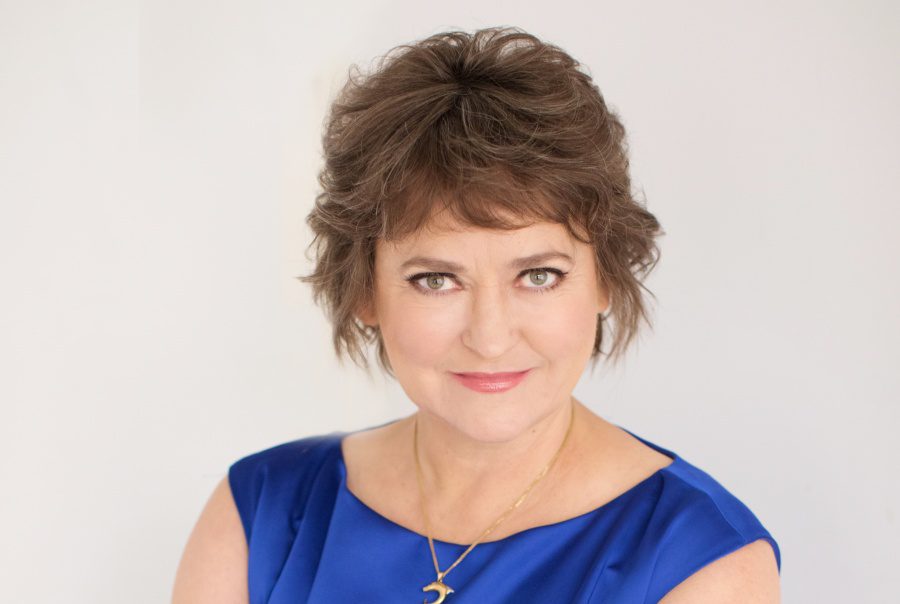 Olympia works with 6 and 7 Figure plateaued business owners who are overworked and want more. She helps them radically 2X their income, fun and freedom.
Olympia works with 6 and 7 Figure plateaued business owners who are overworked and want more. She helps them radically 2X their income, fun and freedom.
Olympia loves working and playing in the realms of millions and billions. She is an award-winning business consultant and speaker, a Fortune 500 companies’ partner, and a leader of the highest national security programs worth billions of dollars.
By the age of 33, she was a corporate executive leading multi-billion dollar programs – making more than $50 Million in sales, facilitating sales of more than $10 Billion and leading teams of up to 100 people.
As The Queen Of Wealth, Olympia liberates business owners’ freedom to scale their companies and fast forward their success without working harder or longer on their fastest path to freedom of time & money!
Since she earned her MBA in Finance, she specializes in business growth strategy that fast tracks success while also having a joyful and meaningful life. Olympia works with high-achieving business owners who seek success and wealth to make a difference for themselves and humanity.
______________________________________
To listen to the EXTRA portion of this show go to RealEstateInvestingForWomenExtra.com
To see this program in video:
Search on Roku for Real Estate Investing 4 Women or go to this link: https://blissfulinvestor.com/biroku
On YouTube go to Real Estate Investing for Women
Moneeka Sawyer is often described as one of the most blissful people you will ever meet. She has been investing in Real Estate for over 20 years, so has been through all the different cycles of the market. Still, she has turned $10,000 into over $5,000,000, working only 5-10 hours per MONTH with very little stress.
While building her multi-million dollar business, she has traveled to over 55 countries, dances every single day, supports causes that are important to her, and spends lots of time with her husband of over 20 years.
She is the international best-selling author of the multiple award-winning books “Choose Bliss: The Power and Practice of Joy and Contentment” and “Real Estate Investing for Women: Expert Conversations to Increase Wealth and Happiness the Blissful Way.”
Moneeka has been featured on stages including Carnegie Hall and Nasdaq, radio, podcasts such as Achieve Your Goals with Hal Elrod, and TV stations including ABC, CBS, FOX, and the CW, impacting over 150 million people.
The Common Path to Uncommon Success with John Lee Dumas – Real Estate for Women
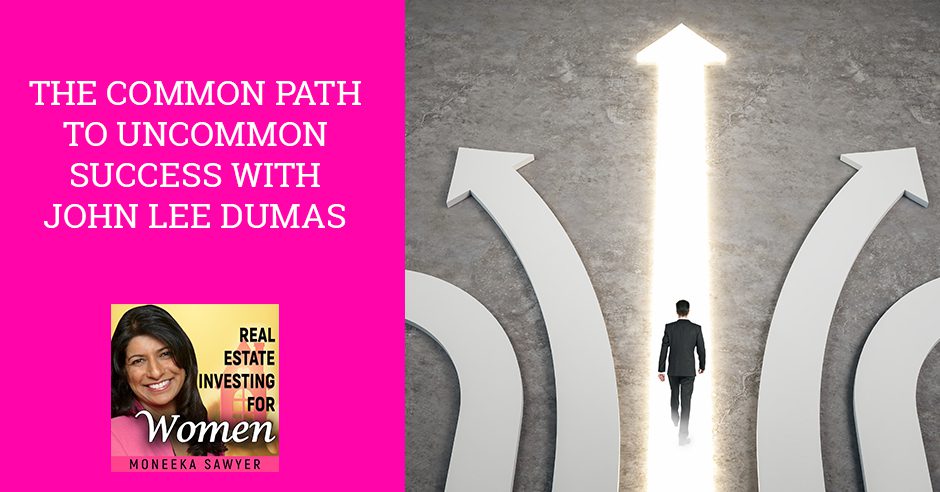
The path to success is not hidden; it’s well-known and well-worn. You simply need a roadmap to help you get there more quickly. This is the message of The Common Path to Uncommon Success, the first traditionally published book by John Lee Dumas, founder and host of the award-winning show, Entrepreneurs on Fire. John’s book is a seventeen-step roadmap to achieving financial freedom and fulfillment in your life. Want to get more glimpses of the book? Listen in to his comeback chat with Moneeka Sawyer so you, too, can learn how to walk the common path to uncommon success!
—
Listen to the podcast here
The Common Path to Uncommon Success with John Lee Dumas – Real Estate for Women
Real Estate Investing For Women
I am so excited to welcome you back to the show John Lee Dumas. He is the Founder and host of the award-winning show, Entrepreneurs on Fire. With over one million monthly listeners and seven figures of annual income, JLD is spreading entrepreneurial fire on a global scale. His first traditionally published book, The Common Path to Uncommon Success, is available now for pre-order at UncommonSuccessBook.com. John, welcome back to the show. How are you?
Moneeka, I am fired up. Your energy is next level. I love your laugh. I’m so happy to be here.
I asked you to come back to the show because I’m excited about your new book, the title is?
The Common Path to Uncommon Success: A Roadmap to Financial Freedom and Fulfillment.
The reason that I brought you back, I want to tell a quick story. When I was sixteen, I was a foreign exchange student in India. I remember going to the book markets. One day, I bought four books that changed my life. There was Think and Grow Rich by Napoleon Hill, How to Win Friends & Influence People by Dale Carnegie and The Power of Positive Thinking by Norman Vincent Peale. There is a secret book that I’ll tell you about later. Anyways, those books started my journey towards personal development and the idea of being in business for yourself.
The path to success is hard work, but it's a very common path. It's not complicated, hidden, or scary. Share on XNow, when I go back to read them, they feel very old school. I’ve been looking for the newer versions of these books to re-motivate and re-inspire me. What I love is with Think and Grow Rich, it was all about Napoleon Hill doing interviews. You are like the interview guy. You have interviewed thousands and thousands of super successful people. It’s like the next level. That’s why I’m so excited about talking about this book. Thanks for coming on. What I want to start with is, tell us why you think people have been lied to by experts out there in the business world.
This is the reality. There are amazing experts out there in this world. You just named a number of those authors who are spreading amazing, great content and helping so many people. At the same time, there are some so-called experts who aren’t quite doing that. Here’s where the red flag comes in. When you hear somebody tell you that, “The path to success is secret, hidden, and complicated, but I have the key to your success. For $1,997.97, I’ll unlock that key for you.” That is a red flag. I’ve interviewed over 3,000 successful entrepreneurs. I personally have been a successful entrepreneur for almost a decade now. I’ve been running a multimillion-dollar a year business for several years.
I know that the path to success is hard work, but it’s a very common path. It’s not complicated, hidden and scary. It’s a common path to get to your version of uncommon success. I am passionate about letting people know what that path is. That’s why I wrote this book. I sat down and said, “I’ve interviewed over 3,000 successful entrepreneurs. What are the commonalities that all of these entrepreneurs share with each other?” When I boiled it down, there were seventeen core foundational principles that every successful entrepreneur share with each other.
I decided to say, “This is a step-by-step roadmap to financial freedom and fulfillment.” I put it in chronological order and created this book, The Common Path to Uncommon Success. It is that seventeen-step roadmap to financial freedom and fulfillment. I wrote every single word, 71,000 words, 273 pages. It took me 480 writing hours. I did it and I’m proud of it. I want to get this book into your hands so that you can have the gift of financial freedom and fulfillment so that you can have the gift of living your version of uncommon success.
Tell us a little bit about what we’re going to find in this book that I’m comparing it to. Think and Grow Rich was more about philosophy. My understanding is that yours is more about strategy. Is that true?
It’s 100%. There are enough books about motivation and inspiration out there. There are fantastic books. That’s not what this book is. This book is a step-by-step strategic book. This book has every single step in the process that you need to achieve financial freedom and fulfillment. You’ve got to put in the work. It’s going to be hard. It was hard for me launching this business and putting in the work to make this happen. Every one of the 3,000 entrepreneurs that I’ve interviewed has had to put in hard work. What’s also hard is being broke, living paycheck to paycheck, waking up every morning being miserable, going to a job that you hate. That’s hard too. Why don’t you choose your hard? Why don’t you choose which hard you’re going to choose? If you don’t choose this hard of building a business, you’re choosing the other hard by default, which is living a life that’s less than you’re capable of living. Potentially, miserable, broke, and living paycheck to paycheck. You don’t need to choose that hard. You can choose your hard. This is the book that will get you there. This is the seventeen-step roadmap.

Uncommon Success: If you don’t choose the challenge of building a business, you’re choosing the other option by default, which is living a life that’s less than you’re capable of living.
I know on your show I mentioned this quote. I love saying this quote all the time. My dad, when I was 21, shared with me something that completely changed my life. He said, “Everybody has stress, fear, and money problems. Do you want poor people money problems or rich people money problems?”
I got a money problem, but the rich people money problems.
They’re good money problems, aren’t they?
Yes, they are. They’re still problems. They’re better than the alternative.
This is the same thing with success. There’s a lack of success problems and successful people problems. On this show, I don’t talk about life being hard. We talk about life being blissful. Part of being blissful is being willing to put in the work to make your life what you want it to be. If it’s hard work, for me, I love to work hard when I’m super passionate about something.
By the way, Moneeka, that brings up a good point because that’s exactly what step one, chapter one is. Most people will never identify this in their life. What is that? Their big idea. Your big idea is buried within you. We need to take it out. It’s your big idea and zone of fire. You can live in that zone of fire every single day. Like Moneeka said, you wake up and you’re still going to work hard. You’re going to work hard doing something you love, you’re passionate about, that fires you up and lights you on fire. If you’re going to work hard either way, why not it be something that is your big idea, your zone of fire? That is what step one, chapter one is, identifying not Moneeka or JLD’s big idea, not being a pale, weak imitation of somebody else’s big idea, but your big idea. There’s a big idea inside of all of us. Let’s get it out.
Tell us a little bit more about what we’re going to find.
Let’s move on to chapter two. This is the thing that a lot of people are surprised at. They come up with their big idea. They’re excited and they should be. It’s a big idea. It’s a good idea, but other people have had this good idea. There’s a lot of people in this world. It’s a good thing that other people have had your big idea before because that’s proof of concept. That means that your big idea is a great idea. It’s viable. That’s awesome. You can’t though, now with this entrenched competition out there, go like a lamb to the slaughter and enter into the market of where your big idea is. You will get crushed. What you need to do is get initial momentum and traction. How you do that is step two, discover your niche.
You need to find the void in the marketplace that’s not being filled and fill that void. You need to find the place in the marketplace that’s not being served and serve it to the best of your ability. By the way, you should become the best solution to that one, single niche problem. I teach you how to do that in step two so that you don’t go out and get walloped by all the competition out there in this broad, vague idea of yours that’s a good one. We’ve got to start small and then we plant a seed. We crank a little wedge in there and then we crank it out.
My big idea was a podcast. I did niche down to business podcast. I did niche down again to interview business podcasts of entrepreneurs. I did niche down a fourth time to daily podcast interviewing entrepreneurs. I did niche and became the best daily podcast interviewing entrepreneurs. By the way, I was also the worst because I was the only daily podcast interviewing entrepreneurs, where sometimes you have to do. I got my initial momentum and traction, wedged in there. What have I done over the years? I’ve blown up and created a media empire as a result. You can, too.

Uncommon Success: If you’re going to work hard either way, why not it be something that is your big idea, your zone of fire?
Is this book for everybody?
This book is not for the people who want to become filthy rich. There are people like that who are out there. I’m not saying you’re going in the wrong direction there. If that’s your heart’s desire, go after that. This book is not about how to become filthy rich. This book is about how to become financially free and fulfilled simultaneously. Those two things are so important in my opinion. I’m teaching people how to become financially free and fulfilled. That might also equate to making millions of dollars. It might equate to be making hundreds of thousands of dollars.
I have a friend, by the way, to give you the alternate example, who’s living in Bozeman, Montana making $47,000 a year. This guy lives well below his means. He wakes up every single day, does exactly what he wants to do, and loves his work. He is so obsessed with fishing and hiking. He gets to do that with his dog and all this. He is so financially free because he’s smart with his money and lives below his means. He’s fulfilled because he’s doing what he loves. That’s a win. I’m a win. I make millions of dollars a year. I’m financially free and fulfilled because I’m doing what I love. You can have both ends of the spectrum. There’s not a right or wrong answer. This book is for people who want that latter, financial freedom and fulfillment, not just becoming filthy rich. I don’t know what that is. I don’t know how to do that because I don’t want that.
Your personal big idea is buried within you. It's your big idea and zone of fire. Share on XInstead of filthy rich, blissfully rich. That’s more about without having the whole picture and puzzle. Thank you so much for joining us, John, and sharing with us your book and information. I’ve already got my copy coming. I’m so excited about that. Ladies, thank you so much for joining John and I for this show. I hope you found it as incredibly exciting as I did. I look forward to seeing you next time. Until then, remember, goals without action are just dreams. Get out there, take action and create the life your heart deeply desires.
Important Links
- Entrepreneurs on Fire
- The Common Path to Uncommon Success
- Think and Grow Rich
- How to Win Friends & Influence People
- The Power of Positive Thinking
About John Lee Dumas

John Lee Dumas (JLD) is the founder and host of the award-winning podcast, Entrepreneurs on Fire.
JLD has interviewed over 3,000 of the world’s most successful entrepreneurs on his award-winning podcast Entrepreneurs On Fire, which has amassed over 100,000,000 listens and 3,000 5-star reviews since its launch in 2012. Past guests include Tony Robbins, Barbara Corcoran, and Gary Vaynerchuk.
JLD has spent the last 8 years studying and interacting with those who have reached the summit of business success, and he has created a 17-step roadmap that will guide YOU to financial freedom and fulfillment.
Love the show? Subscribe, rate, review, and share!
______________________________________
To listen to the EXTRA portion of this show go to RealEstateInvestingForWomenExtra.com
To see this program in video:
Search on Roku for Real Estate Investing 4 Women or go to this link: https://blissfulinvestor.com/biroku
On YouTube go to Real Estate Investing for Women
Moneeka Sawyer is often described as one of the most blissful people you will ever meet. She has been investing in Real Estate for over 20 years, so has been through all the different cycles of the market. Still, she has turned $10,000 into over $5,000,000, working only 5-10 hours per MONTH with very little stress.
While building her multi-million dollar business, she has traveled to over 55 countries, dances every single day, supports causes that are important to her, and spends lots of time with her husband of over 20 years.
She is the international best-selling author of the multiple award-winning books “Choose Bliss: The Power and Practice of Joy and Contentment” and “Real Estate Investing for Women: Expert Conversations to Increase Wealth and Happiness the Blissful Way.”
Moneeka has been featured on stages including Carnegie Hall and Nasdaq, radio, podcasts such as Achieve Your Goals with Hal Elrod, and TV stations including ABC, CBS, FOX, and the CW, impacting over 150 million people.
Finding Financial Freedom Through Multifamily Investing With Sri Latha – Real Estate For Women
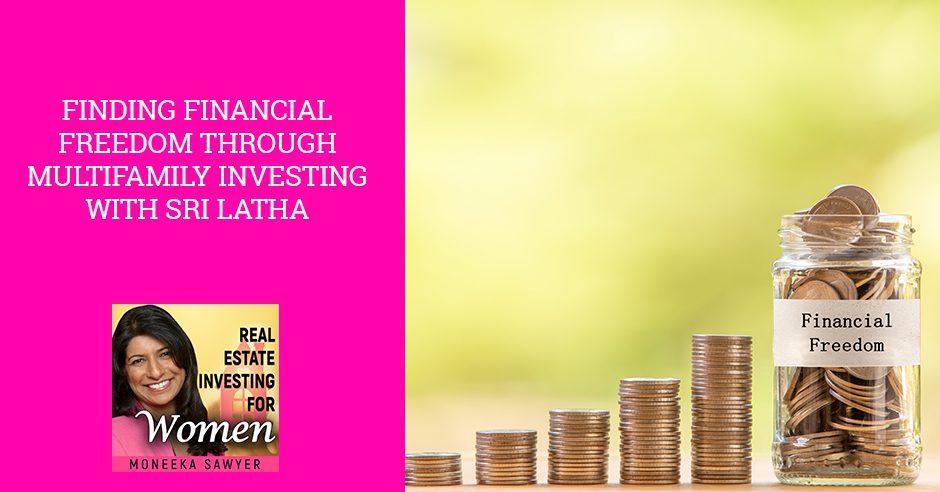
To become a successful real estate investor, you must employ some strategies, one of which is to invest in multifamilies. Moneeka Sawyer’s guest today is Sri Latha, an expert investor in commercial multifamily properties. Sri gives us an outline of how she gained outstanding results in a short period. Join in the conversation and find out why multifamilies remain lucrative even during the COVID-19 pandemic. Whether you are a new or seasoned investor, Sri will inspire you to dive right into real estate after listening to this episode!
—
Listen to the podcast here
Finding Financial Freedom Through Multifamily Investing With Sri Latha – Real Estate For Women
Real Estate Investing For Women
I am so excited to welcome Sri Latha to our show. Sri is a Business Leader with a few years in the credit scoring and real estate industry. As a former Data Scientist for FICO, building FICO scores for banks all over the world, Sri has extensive knowledge and experience with the mortgage loan process, allowing her to educate and support her clients as they pursue their dreams to own a property. She is an investor in Silicon Valley like me. She has actively invested in commercial, multifamily properties since 2014 with outstanding results. Sri shows her insights, resources and strategies, taking the fear out of real estate investing for both first-time and seasoned investors alike. Her specialties include real estate statistical modeling, credit score, business strategy, business development and analytical real estate. Hello there, Sri. How are you? Welcome to the show.
Moneeka, I’m so happy to be here.
We finally meet. We’re going to have to do that in person since we’re both local and so excited.
That’s exactly what I was going to say, too. Someday, we’ll get to see face–to–face.
Sri, tell us a little bit about the high level of your story. What brought you to real estate?
My real estate journey started with a personal, not–so–nice story. My husband got pretty sick in 2010. He found himself unable to walk one fine day. He couldn’t go to work. We were scared. It turned out he had an autoimmune disease that we were able to cure and maintain. It took a while but he’s 99% better now. That lit a fire in our bellies to get something moving in the event that something didn’t happen to him. We got into real estate with that intention. We wanted financial freedom. We wanted the ability to have him either reduce his work or stop working if it came down to that. It never did. On the other hand, our real estate investing took off. We started in 2014. It did well for us. We’ve been growing that business ever since. In 2018, I stopped working and I’ve been doing full-time real estate.
You will learn so much from doing. Share on XYou never hope that anybody ever goes through that level of trauma. It shows us who we are. It shows us how strong we are and what we’re capable of. It lights a fire under us like nothing else can. I‘m glad you came out on the other side with so much success. I’m glad he’s doing well.
That was always the most important part. Once we established that he would be getting better and he did and then we supercharged our real estate stuff towards that goal. Unlike my peers, I’m still in my 30s, it feels like, “How did you even think about this stuff that early?” It’s simply because we were put in that situation where it made us think that far ahead.
Tell us a little bit about your strategy. I know that you live in Silicon Valley. You’re 10, 5 miles away from me. We’re in a similar market. The ladies that are reading know that I do executive properties. They also know that we play mostly or I for appreciation. I usually cut even and then I play for appreciation here. I’m making some shifts for cashflow now as I’m thinking about retirement. My strategy is in transition. Normally, we don’t talk about cashflow in Silicon Valley and yet you do it. Tell us a little bit about what you’re doing in this high–cost of living area to make that happen.
When I started, I bought into that narrative as well, which was, “You can‘t cashflow in California. What are you trying to do with apartments?” Cashflow is tied to the value of the apartment. It’s all connected. I first started my investing career out of state and then I brought my money back to California. Even I couldn’t afford California when I first started. I took my money out of state, doubled it in a year and a half and then brought back enough about $700,000, which I then invested into an apartment here in California. To answer your question, the strategy that I‘d use is I buy in rent–controlled markets. Historically, San Francisco, Oakland, Berkeley, they were all rent–controlled for decades.
There are apartments that are way below current market rents. An apartment now in Oakland, a one-bedroom is paid $2,500. Oakland has been historically rent–controlled. Probably, a one–bedroom is at $600, $700, way below where the market is. The strategy involves buying an older, value–add apartment, which has work that needs to be done. Talk to the tenants and negotiate what I call Cash for Keys. It has been used all over the country. It’s an agreement between the landlord and the tenant to pay an agreed-upon sum of money in return for an empty apartment.
You talk to the tenant. If they’re willing to talk to you then you come to an agreement on what amount of money would be paid for leaving the apartment. Once you do that, you would draft up a piece of paper that says that. You pay them the money. You are left with an empty apartment that you can now renovate and put it back on the market at that $2,500. There are lenders who will lend you both on the renovation, purchase and the Cash for Keys. They’ll even pay you the amount of money you need to pay the tenant.
What if a tenant says no?
If they say no, it’s a no. There’s nothing you can do. You can wait six months and then you can go back and initiate a conversation. What I recommend is while you’re in contract on a property to start the conversation so you know how many people are likely to move out. If you are not going to make the cutoff to make your numbers work then back out of the deal. If you are able to hit the numbers that you’re looking for then you move on. When I started, I did not have this piece of information so I took a chance. What I found is as you buy more and more number of units, about half the units tend to turn. People are willing to move out and all of that good stuff. I recommend folks to talk to the tenants while you’re in contract to know for sure where you’re going to land with that.
Fifty percent is enough to make the numbers work. Is that true?
It is enough, in most cases. It’s case by case. In most cases, 50% is enough.
Talk to me a little bit more about the value–adds that you put in.
I do heavy lifting value–add, which means I gut the whole unit. Historically, I’ve had success with converting studios to 1–bedrooms, 1–bedrooms to 2–bedrooms. We live in such a dense area, you can get a significant bump up in rent if you did that even if it’s a small one–bedroom. My studios are probably 475, 450 square feet. I was still able to add a bedroom by removing the kitchen. If you think of an older apartment, kitchens used to be a separate room. People don’t want that anymore. They want the open kitchen floor plan. We moved the kitchen into the living room, took some of the square footage that was previously a kitchen, added some more from the living space and then made a separate bedroom. That allows us to bump up rents $300 more than what I would have gotten for a studio.
I know this number is not correct but I’m going to give some examples to keep it easy. You’ve got a studio that should rent for $1,000. Maybe it’s renting for $500. You do Cash for Keys to get them out. Normally, you could do a basic cosmetic refurb and get people in for $1,000 just by doing that. Now, you cut even on your Cash for Keys. If you gave them $2,000 to move out, now you’re up in here than at four months. You’re getting a better range. You can refinance from there. However, you’re not even stopping there. You’re turning that studio that would normally go for $1,000 into a one–bedroom. It might go for $1,500 to increasing your rent significantly more, correct?
That’s exactly right. It still ends up being a junior one–bedroom. You may not get the $1,500 but you’ll get $1,400 or $1,350. It’s still a significant amount on top of what you were expecting to get. Usually, a city does not have a problem with that kind of conversion because you’re not increasing the square footage at all of the unit. You’re just changing the interiors. Once you establish that with one of your units, you can now do that for the rest of them.
You do need to get city approval for all of that stuff. How big are the communities you‘re buying? What are the apartment building sizes usually?

Multifamily Investing: It all starts with a good broker who then refers you to the right people.
Usually, I buy 12 to 20. That’s the range that is the sweet spot. I do sometimes buy portfolios of smaller properties. If someone wants to unload say 3, 4 or 5 units, I might buy those as well. I found over the last few years from my experience that I prefer the big one, as opposed to many small ones. It takes away from your mental capacity to manage five as opposed to managing one.
Also, with lending, when you buy a portfolio, do they lend on the whole portfolio? Do you have to get each one separately?
They do lend on the portfolio. It’s a little bit more complicated when you sell it off piecemeal. There are some nuances there for sure. I tend to use hard money lenders when I buy in California. Those are the lenders who would finance a property that is so under market, where the rents are so terrible and no one else would put a bank loan on it. The hard money lenders are the ones who would finance either distressed properties or properties that are severely under market.
What kind of terms do you get with them? Do you still do a five-year with them? Do you do a shorter term and then refinance with a normal bank after?
Correct. It’s a shorter term. It’s about a year to eighteen months with an optional extension. The interest rates are 9% to 12%. They’re pretty high. The goal after it’s stabilized, you will then refinance with a permanent loan, say 5 years, 10 years, something like that.
You mentioned something about a hotel conversion. Can you talk to us about what you’re doing around that?
I’m in contract on a hotel to multifamily conversion out of the state. I’m in Albuquerque, New Mexico. That’s where my property is located. I’m still in contract and yet to close but now we just got financing and all that good stuff in place. That’s exciting. What that strategy is, one, we are in COVID. Hotels are badly hit by COVID. Therefore, there are hotels that are looking for buyers before they go into severe distress. They’re looking for buyers because they anticipate going into distress down as time goes on. We were able to find properties that were already zoned for multifamily. They’re a hotel but the land use allows that piece of property to also function as a multifamily property. I only went after those kinds of properties because rezoning, generally speaking, is a nightmare. You don’t want to get caught in that web.
I went after properties that would allow me to convert to multifamily without that extra work. Once I identified those properties and I called the hotel broker, who did all the talking for me and got us in contract and now I’m putting kitchens in each of those hotel rooms and converting them to studio units. Why this strategy works is I buy a hotel room at $20,000. I put in about $15,000 of work. Now, I’m at $35,000. A multifamily per unit sale price is at $70,000 in that market. I’m buying, finishing and stabilizing every unit at $35,000. I get to sell it at $70,000 in a reasonably good location. That’s how that strategy plays out. I’m in the process of doing it.
Are they condo conversions or apartment conversions?
They’re not condos. They continue to be multifamily rental apartments. You can condo–convert. One thing that happens a lot in San Francisco and Oakland is you buy a multi and you convert it to condo conversions. The problem with that is condo markets are very volatile. By the time you were converted, it takes about a year and a half to do that. By the time you’re done, you don’t know if the market’s going down or up. With a lot of new construction coming into San Francisco and Oakland, it’s hard to compete with smaller multifamily when they’re looking at nice, new buildings. Condo conversions exist in California. The one I’m targeting is a hotel–to–apartment conversion and it cashflows well. It makes a profit on the back end when you sell.
Why did you not do any of those in the local area? Were they not available?
There are two aspects of it. One, you need a hotel that’s a little bit older, like built in the 1970s or so. You need an influx of a lot of new hotels in that neighborhood or that city, where people are not patronizing the old hotel as much and they’re not operating at capacity. The last thing is the zoning needs to lend itself to that conversion. We came across a property that was already zoned in Albuquerque and that’s how the light bulb went off. We pursued that market strongly until we got into a contract on one that worked for us. The truth is, zoning is so varied and so incredibly nuanced. It’s very hard to just pick 5 or 10 markets where everything fits. We’re nearly half now. I’m in the process of digging into particular markets where this zoning is similar to Albuquerque, New Mexico where I can then implement this in other markets.
How do you find your teams and staff in those out-of-state markets?
When you go out of state, it’s like, “You know nobody. How are you going to set things up?” I think it all starts with a good broker. Honestly, from my last experience with investing in Dallas and this experience in Albuquerque, it starts with a good broker who then refers you to the right people. The second is I also happen to be a realtor. I get to dig into like, “Who owns what? Which banks are funding what? Who did which deals?” CoStar has been very helpful in the process of going out of state. Now, I know who are the agents who are doing big deals in that state or who are the agents at least working within the unit sizes that I’m looking for. “Who are the banks that are financing these kinds of properties?“ I know all of that stuff from CoStar.
CoStar, is that available to people that are not realtors?
Grow your strategy exponentially. Share on XIt is available to investors now but there’s a high price tag on it. Let’s put it that way. It’s a commercial MLS, where all commercial properties show up. If you’ve heard of LoopNet, LoopNet is owned by CoStar. CoStar is the parent company. It owns LoopNet. LoopNet previously had a lot of information on it. Once CoStar bought them, they took off a whole bunch like you can‘t find comps and the cap rates. It’s very hard to get information from LoopNet. Now, they want you to buy CoStar and get a license. You have access to a lot of data. They have even city–specific data like household income. You can sort all over the country by population growth, household income, all of that good stuff. It helps narrow down your out-of-state markets significantly.
How do you find a good broker out of state?
I would pick up the phone and call.
It’s the conversations to find somebody that you feel comfortable with. Is that true?
No.
It’s just pick up the phone, make phone calls and then you’ll pick somebody that you feel comfortable with.
The first initiation is usually they tend to have a listing that’s on the market. You call specific to that listing. You may not end up buying that one but you get in conversation with the broker itself. For multifamily, I also recommend Marcus & Millichap. They’re all over the US. They’re a brokerage firm. Someone who’s at the associate or senior associate level tends to be hungrier for newer investors. At that point, they’ll be willing to work for you.
Tell me a little bit about investing out of state. Like you said, initially, you invested out of state, doubled your money and brought that money back. What were you investing in then? What was the strategy that you were using that you said you doubled your money with?
The strategy is simple. It’s the value–add apartment strategy. You buy an apartment that is renting a little bit under where the market is. I would go in there and renovate the units as the lease ends. Whenever the lease ends, unlike in California where you can’t have your tenants move out at the end of the lease. States outside, which are more landlord–friendly and not rent–controlled, will allow you to go in there and renovate your units whenever the lease ends. When the lease ends, I would go in there, renovate those units, put in washer dryers, make them more attractive and then put them back on the market at the new rents.
I did that for all twelve units. In a year and a half, I was done with all twelve of them. I put that property back on the market. These apartments make more income now. The crux of the strategy is that apartments have valued on income. When your net income is now increased, that property is now worth a lot more than when you bought it. The down payment that I put in was about $300,000. I walked away with about another $300,000. I walked away with about $700,000 and I brought that back to California.
This is something I want you ladies to understand. She said something key here. This is something you want to know when you’re looking at value-add and that thing with apartment buildings. We’ve talked about this before on the show. Lending for buildings that are five units or more is based on the rental income. It’s not just the rental income. There is other income. There’s from laundry and other things, parking. There are other places that you can get income. The income of the property is what you get your loan based on. It’s not based on your personal credit score or your personal financials. It’s based on the income of the property. That’s the difference between when you’re getting a loan for anything that’s four units or lower or if you’re going for five units or higher.
That’s exactly right. That makes a huge difference in the value–add strategy from the point of view of an investor. You now know how to control the value of your property simply by increasing its income or reducing its expense. By doing both, you can now supercharge your investing strategy. You do that on one, you unlock the value on that property. You sell it. You do it again, you unlock the value on that one. If you find yourself in a market that has suddenly turned, you do nothing. You just hold on. It cashflows like it would normally do.

Multifamily Investing: Cashflow is tied to the value of the apartment.
You can choose to renovate or hold off on renovations until you’re certain where the market’s going. It lends itself to a safer strategy. The lenders that I used in out-of-state markets are the commercial banks, did fund those deals, unlike California where I use those high–priced loans where you‘re forced to refinance, which is much harder. You don’t want to put yourself in that situation. If you’re going out of state, you have way more ability to control the financing aspect of it because you’re now in an apartment that makes money.
Do you have any other states that you particularly like? Do you just look for specific projects?
I started out in Texas. That’s always a good one. Half of California is moving to Texas. Texas is always a good one. Florida is another favorite. The rest is just based on the deal itself. I try to get in contract on the deal. If it looks good on paper, I try to get in the contract first. It’s either me or my husband who flies out there and looks at the property.
I have never heard of this particular strategy. Thank you so much for bringing that to my ladies. I know in EXTRA, we’re going to do an even deeper dive. You’ve given some good details on how this works but it is still high–level. Ladies, she’s going to go into a deeper dive and give us some real specific pieces of the strategy and a breakdown of the numbers so we can see exactly how she’s implementing. We’re going to be talking about that in EXTRA. Stay tuned for that. For now, Sri, tell us how my ladies can get in touch with you.
I have a website. It’s TheSriLathaGroup.com. My name is Sri Latha. It just goes with that. I’m on Instagram as @BayArea_Multifamily. It’s fairly straightforward. I’m also on Facebook. I have a Facebook group called Bay Area Apartment Investing Mastermind. If you’re local to California or any high–cost of living area and you want to know the inside strategies or want to ask me a question, you can go on Facebook. Search for Bay Area Apartment Investing Mastermind. You’ll find the group and feel free to talk to me there.
Thank you so much. I know that you’ve got a free gift also that you wanted to offer my ladies.
Yes. I do have a link to Apartment Investing Basics video where I go into more details of why apartments are different from four units and under or residential, how to add-value to apartments, how to increase the value of your property specific to apartments and some examples of what I’ve done in the past.
That’s a Vimeo URL, ladies. Go ahead and look for that there. Thank you for that.
Thank you, Moneeka.
Are you ready for our three rapid–fire questions?
I am.
Sri, tell us one super tip on getting started investing in real estate.
The super tip I have for your readers is to not use anybody else’s calculator. That’s how I got started. Put the numbers into a blank Excel spreadsheet. That’s my tip. You will learn so much from doing that. You won’t have any hesitation jumping into a property after you build your calculator. It’s a great way to get started.
What is a strategy for being successful in real estate investing?
My strategy or tip for that is when you’re in your early stages of real estate investing, try to exponentially grow either the number of units or your strategy itself should lend itself to exponential growth. You don’t want to buy one and then never sell it for 30 years. Maybe I’m not talking to the majority of the people out there. I truly believe in growing your strategy exponentially, where you buy, unlock the value, sell it and upgrade to bigger and larger number of units. Holding onto one and then saving enough to buy another is going to take forever. I highly recommend exponential growth in the early stages of your real estate investing so that you can cut that 20–year time frame to 10 or to 5 even.
A good morning routine is key to your success. Share on XWhat is one daily practice that you do, Sri, that you would say contributes to your personal success?
As a mom of two kids, it has to be my morning routine. I wake up before my kids do. Otherwise, you’re not going to find any time to do anything. My kids are 2 and 4. I try to wake up before they do. I do some meditation, some affirmations, some journaling. All of that keeps me sane through all of the madness of real estate.
In my book, Choose Bliss, one of the very first strategies that I talk about for bliss is setting that morning routine. The thing is we all have a morning routine anyways. For most of us, it doesn’t serve our day. It doesn’t set us up for success and bliss. It normally just gets us out the door frenzied. Thank you so much for that. Sri, this has been amazing. Thanks for all that you’ve shared on this portion of the show.
Thank you so much for having me, Moneeka. It’s always fun to talk to you.
Ladies, thank you for joining Sri and I for this portion of the show. If you are subscribed to EXTRA, stay tuned. We’re going to be talking more deeply about the specifics of this strategy that Sri shared with us. We’re going to get more specifics on how to create the strategy, implement the strategy and also some more of the numbers to hash that out for us. I’m excited about that. If you’re not subscribed to EXTRA but would like to be, go to RealEstateInvestingForWomenExtra.com. You‘ll get the first seven days for free. Come check us out. If you don’t love it, you don’t have to subscribe. For those of you that are leaving us now, thank you so much for joining Sri and I for this portion of the show. I appreciate you and I can’t wait to see you next time. Until then, remember, goals without action are just dreams. Get out there, take action and create the life your heart deeply desires. I’ll see you soon. Bye.
Important links
- Sri Latha
- CoStar
- @BayArea_Multifamily – Instagram
- Bay Area Apartment Investing Mastermind
- Apartment Investing Basics – Vimeo
- Choose Bliss
- RealEstateInvestingForWomenExtra.com
About Sri Latha
 Sri is a business leader with over 6+ years in the Credit Scoring Industry and over 6+ years in the Real Estate industry. As a former data scientist for FICO, building FICO scores for banks all over the world, Sri has extensive knowledge and experience with the mortgage loan process, allowing her to educate and support her clients as they pursue their dream to own property.
Sri is a business leader with over 6+ years in the Credit Scoring Industry and over 6+ years in the Real Estate industry. As a former data scientist for FICO, building FICO scores for banks all over the world, Sri has extensive knowledge and experience with the mortgage loan process, allowing her to educate and support her clients as they pursue their dream to own property.
An investor in Silicon Valley, Sri has actively invested in commercial multi-family properties since 2013 with outstanding results. Sri shares her insights, resources and strategies, taking the fear out of real estate investment for both first-time and seasoned investors alike.
As a wife, mother of two and resident of the Willow Glen area of San Jose since 2008. In her free time, Sri loves Bikram Yoga and hiking with her dog and her family.
Love the show? Subscribe, rate, review, and share!
Join the Real Estate Investing for Women Community today:>
——————————————————
To listen to the EXTRA portion of this show go to RealEstateInvestingForWomenExtra.com
To see this program in the video:
Search on Roku for Real Estate Investing 4 Women or go to this link: https://blissfulinvestor.com/biroku
On YouTube go to Real Estate Investing for Women
Moneeka Sawyer is often described as one of the most blissful people you will ever meet. She has been investing in Real Estate for over 20 years, so has been through all the different cycles of the market. Still, she has turned $10,000 into over $5,000,000, working only 5-10 hours per MONTH with very little stress.
While building her multi-million dollar business, she has traveled to over 55 countries, dances every single day, supports causes that are important to her, and spends lots of time with her husband of over 20 years.
She is the international best-selling author of the multiple award-winning books “Choose Bliss: The Power and Practice of Joy and Contentment” and “Real Estate Investing for Women: Expert Conversations to Increase Wealth and Happiness the Blissful Way.”
Moneeka has been featured on stages including Carnegie Hall and Nasdaq, radio, podcasts such as Achieve Your Goals with Hal Elrod, and TV stations including ABC, CBS, FOX, and the CW, impacting over 150 million people.


